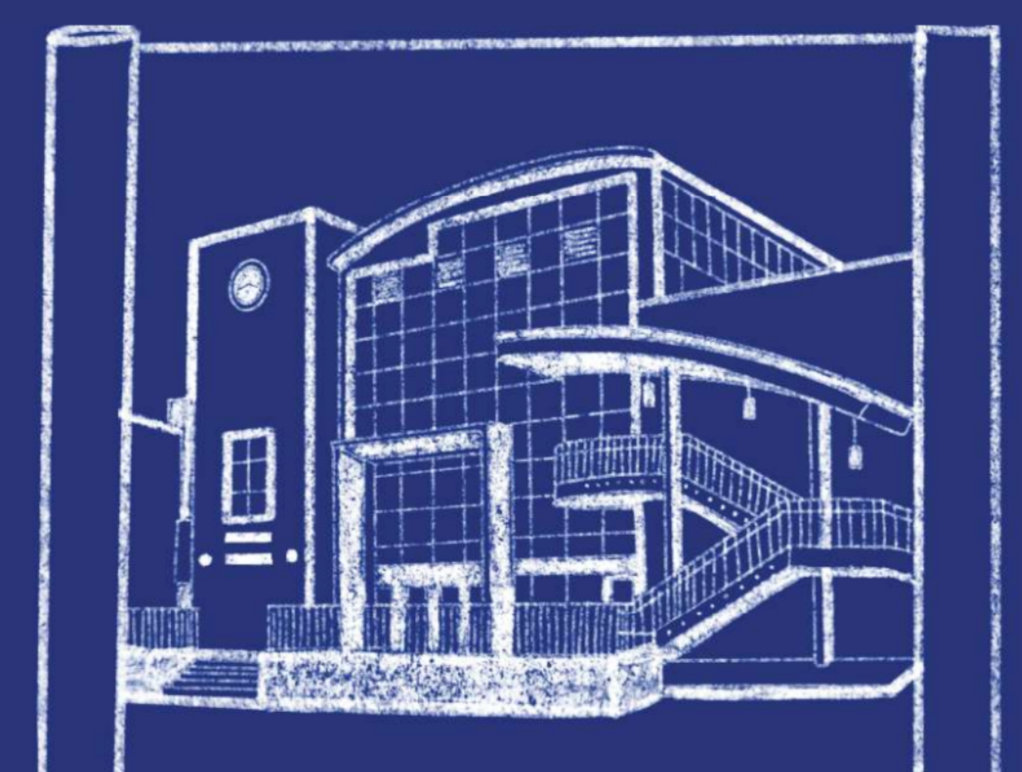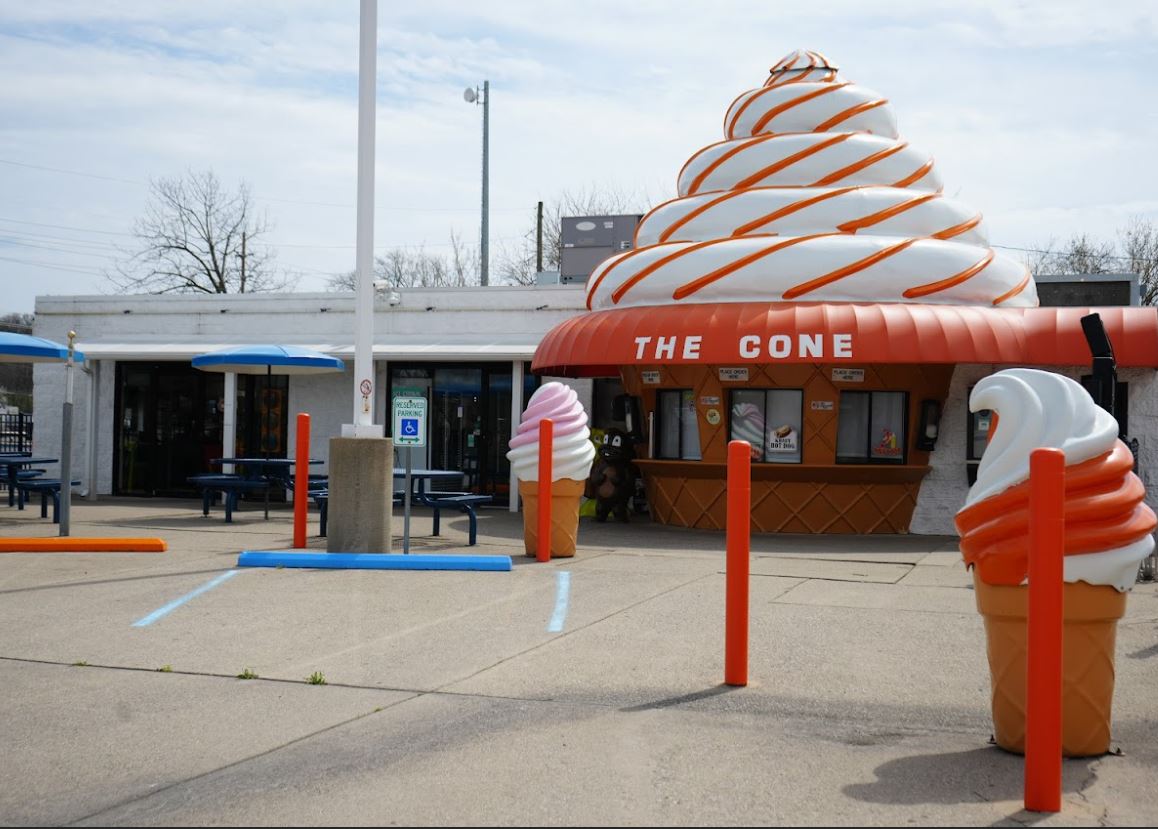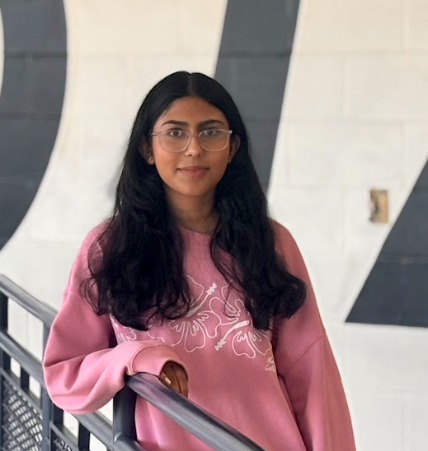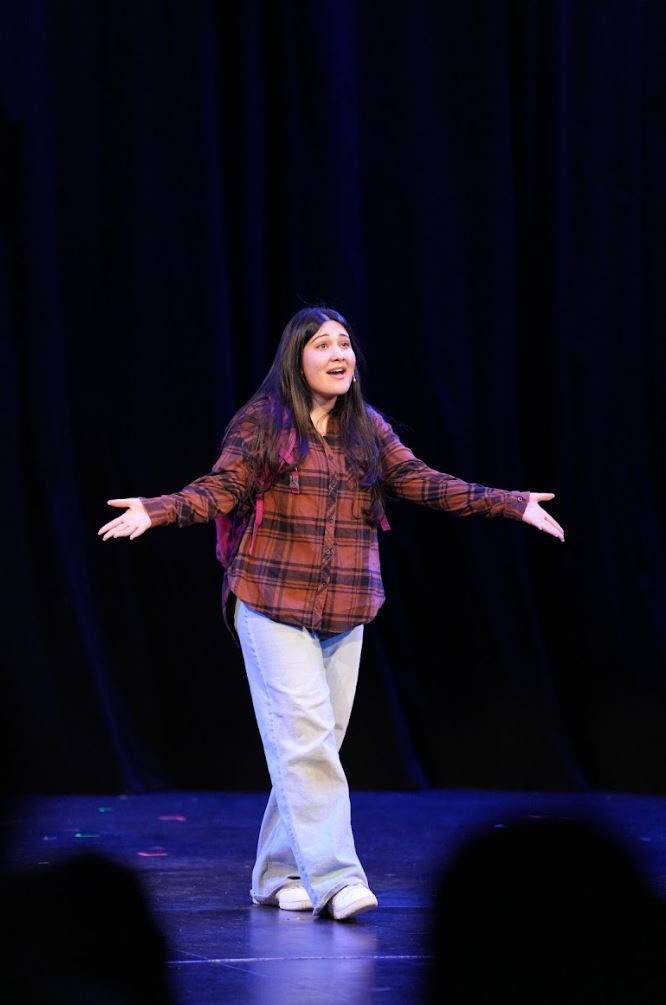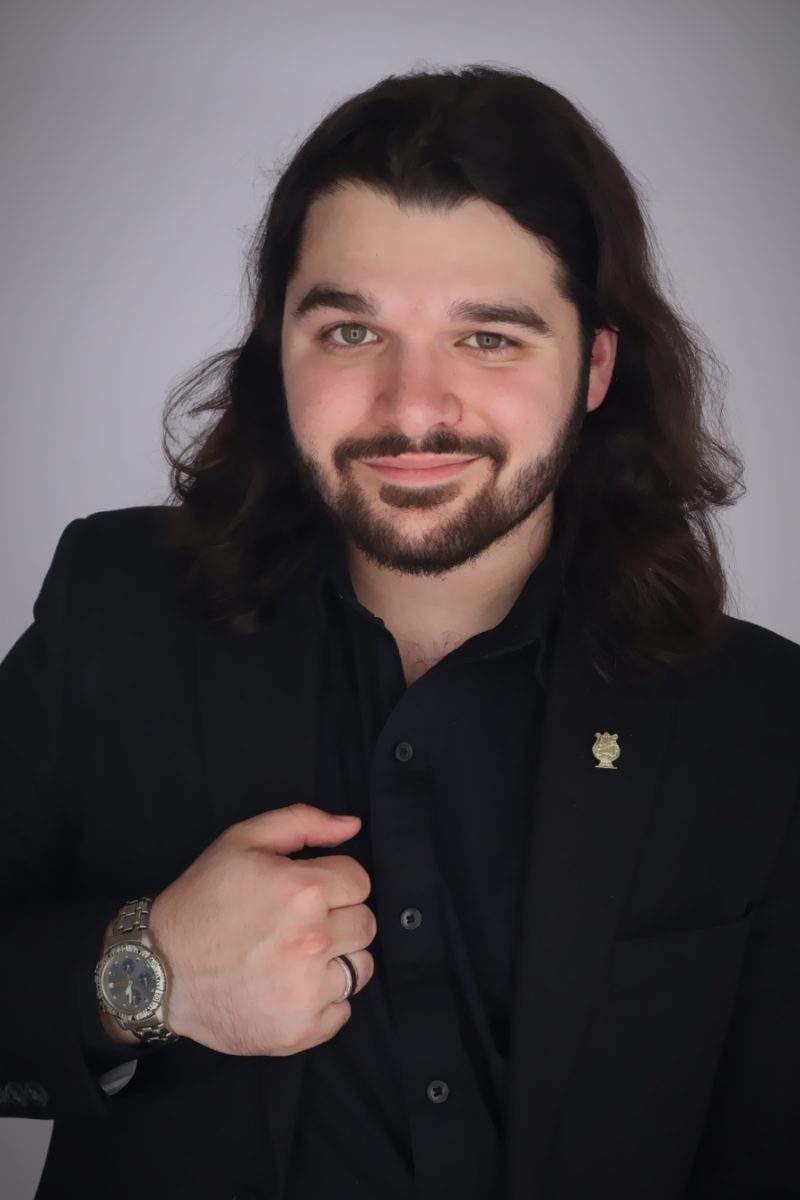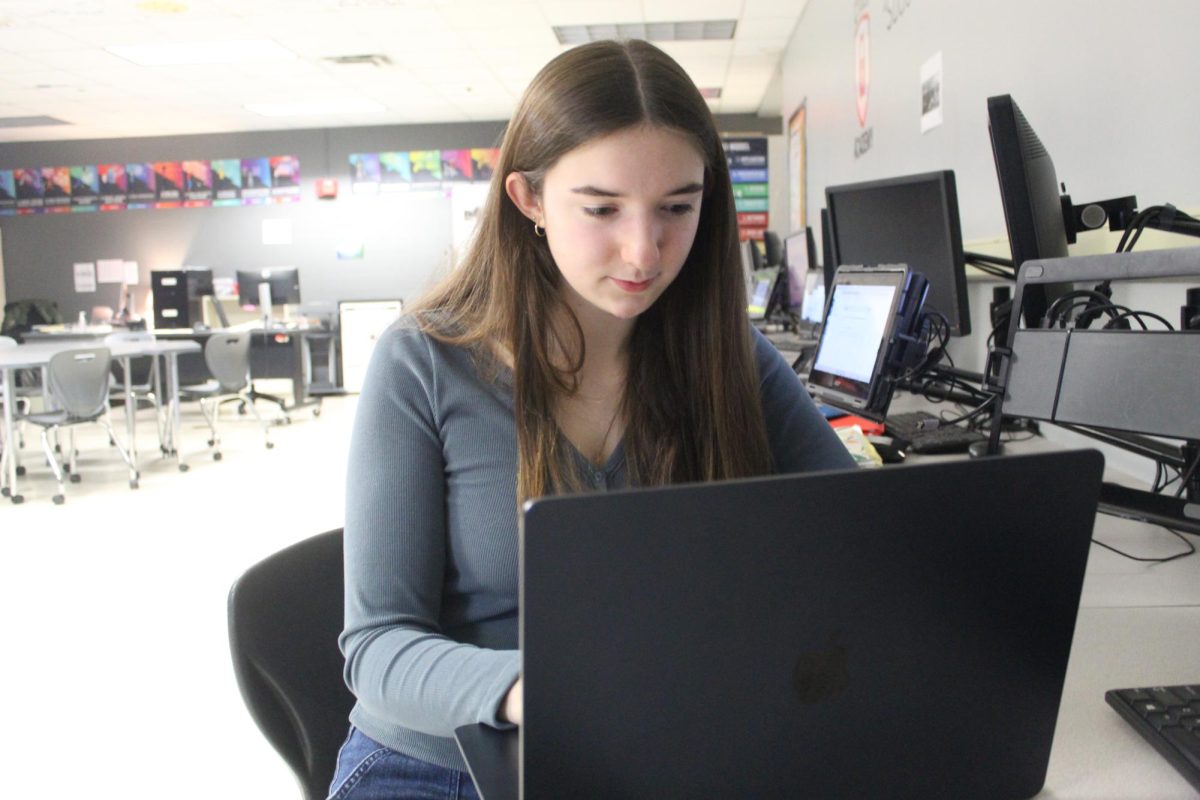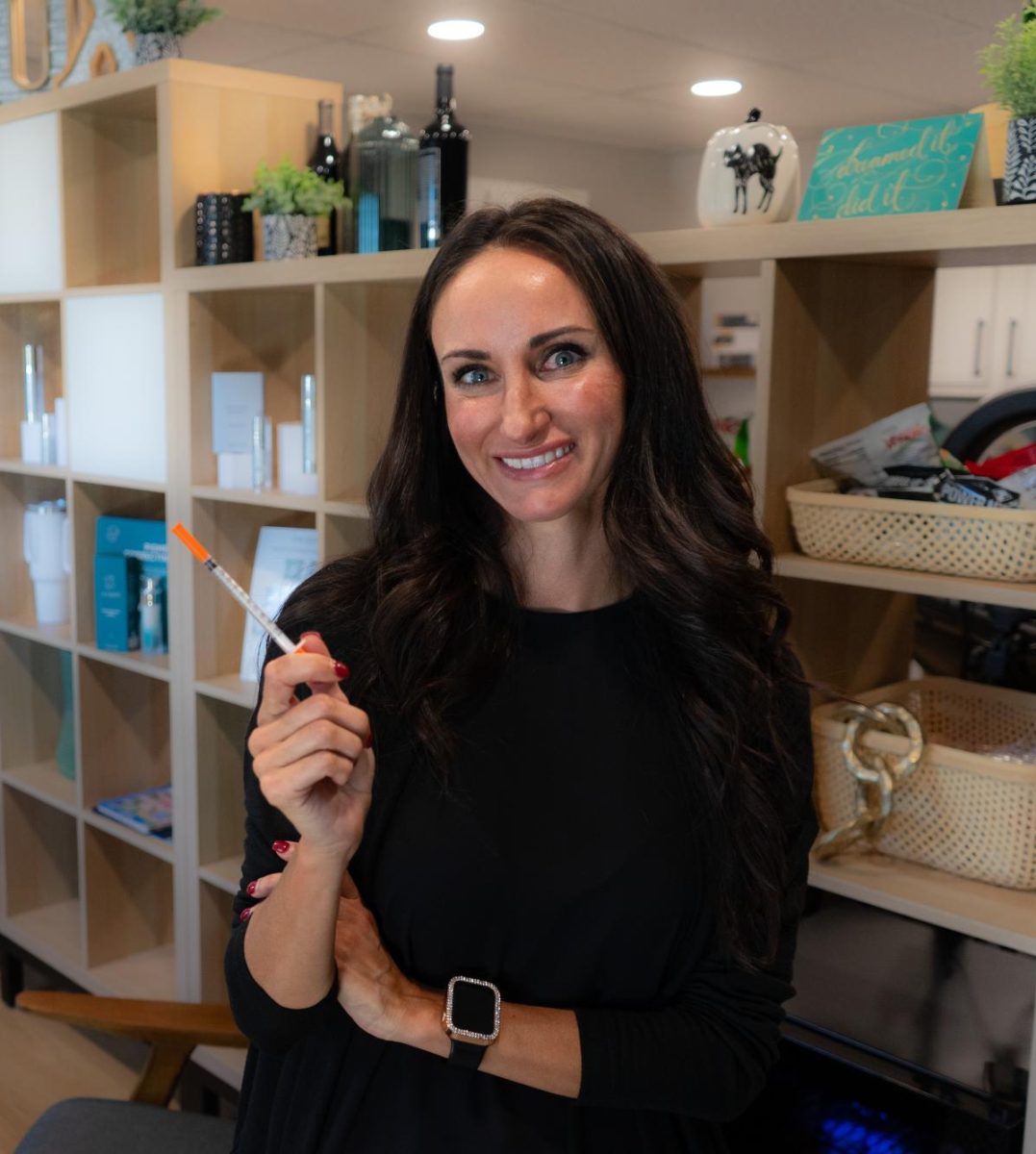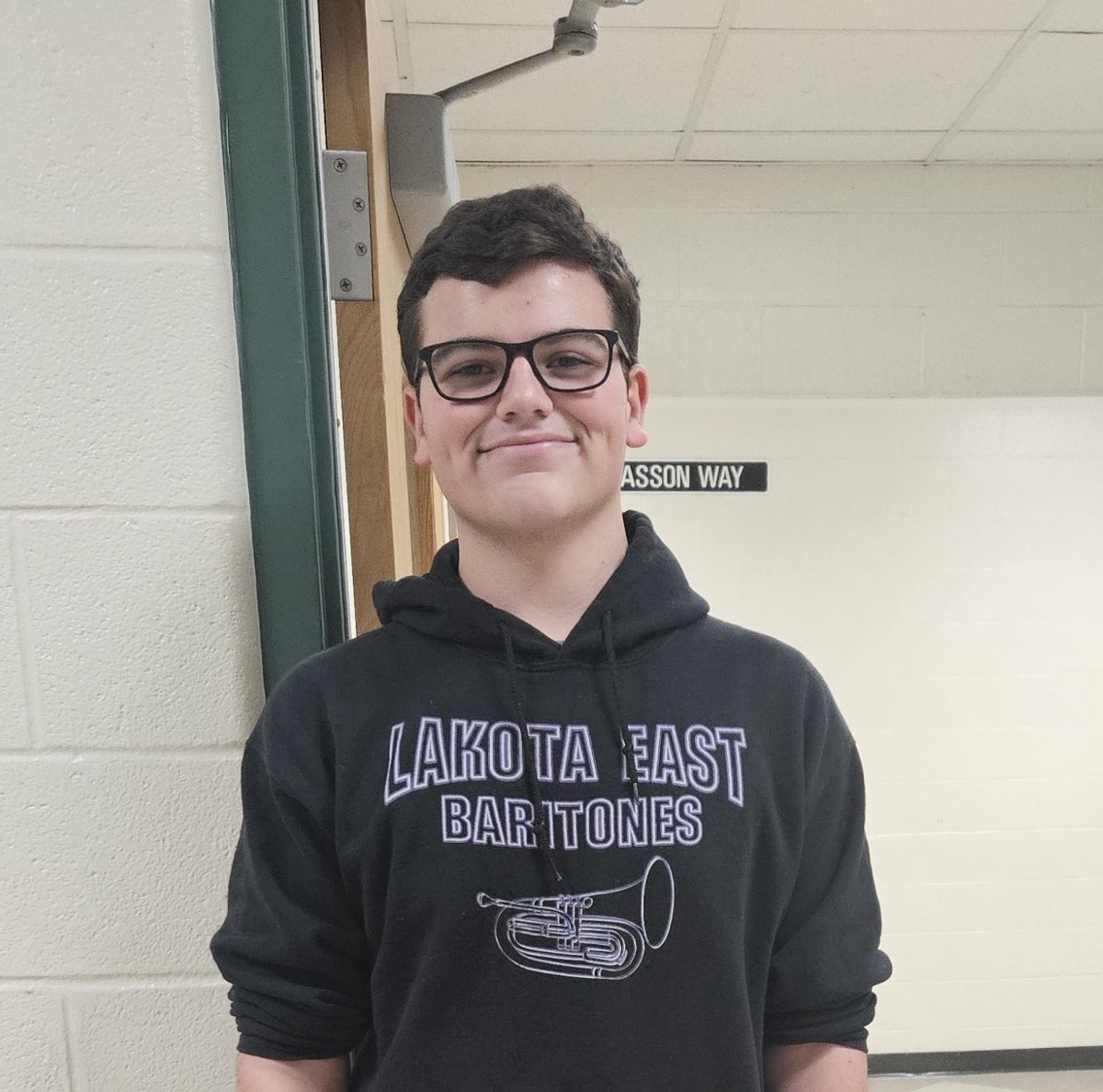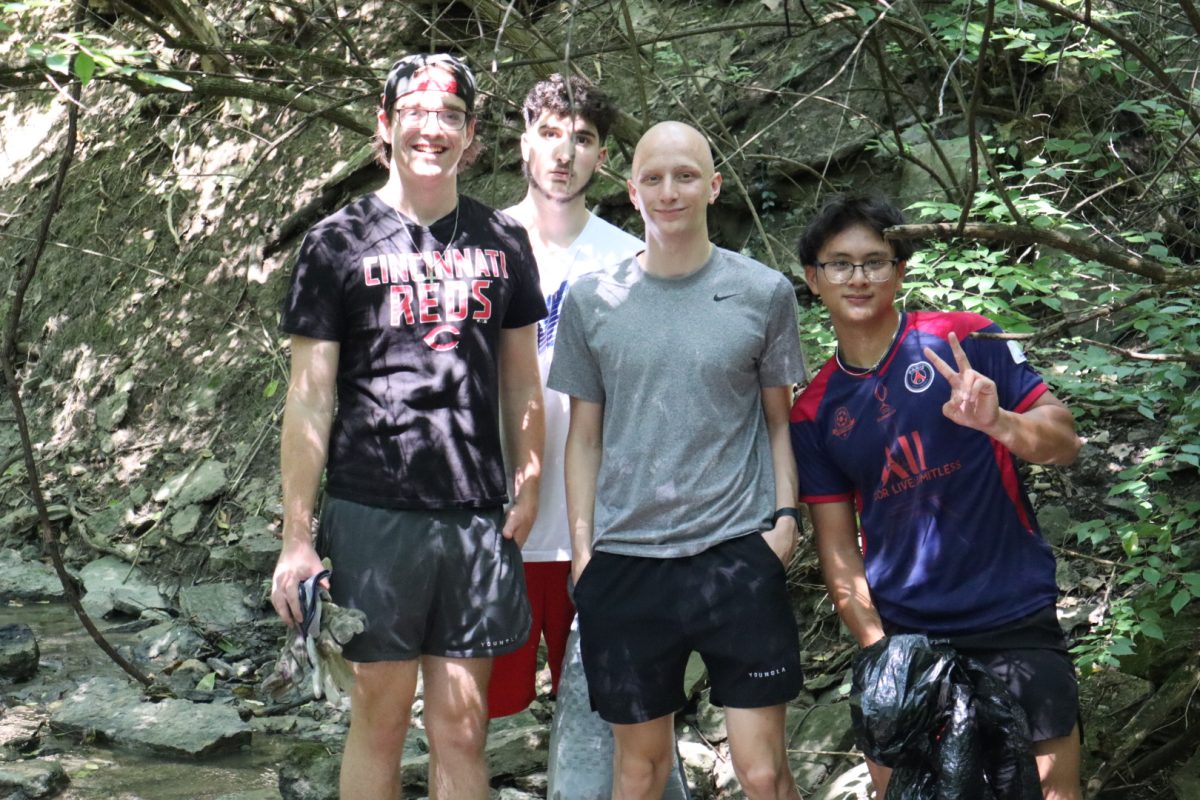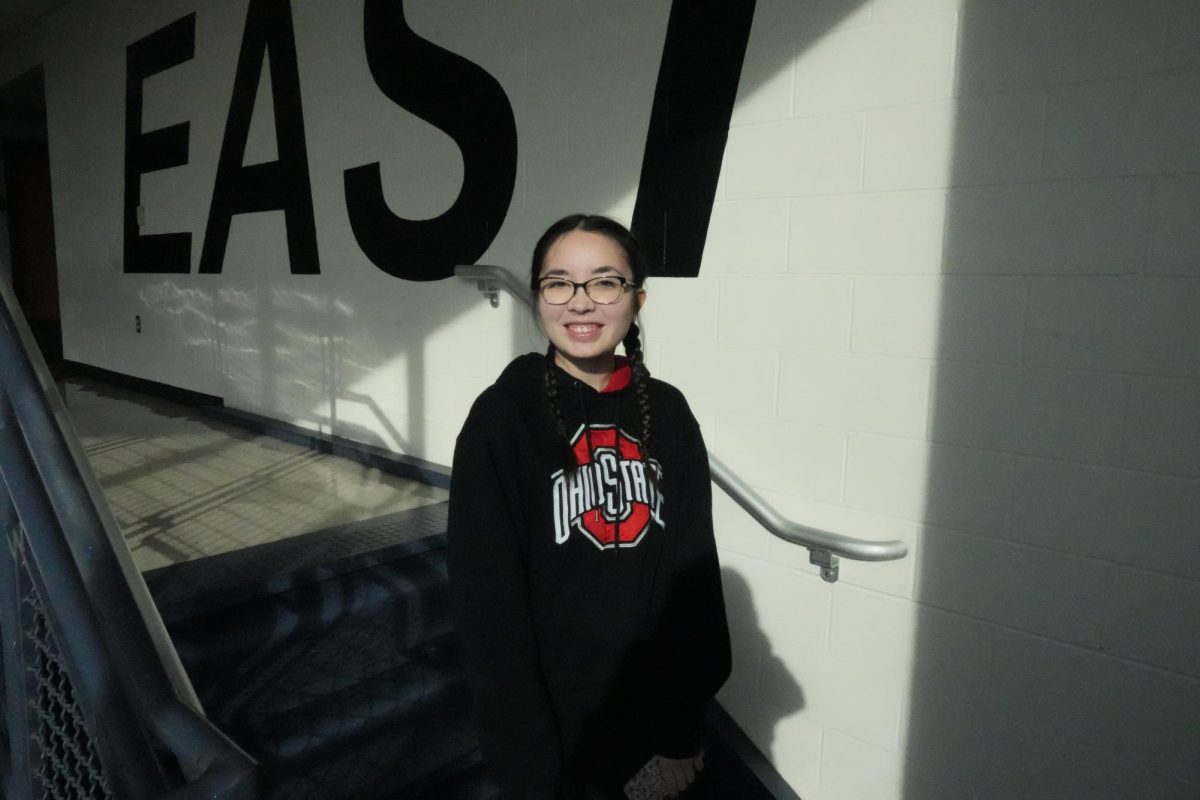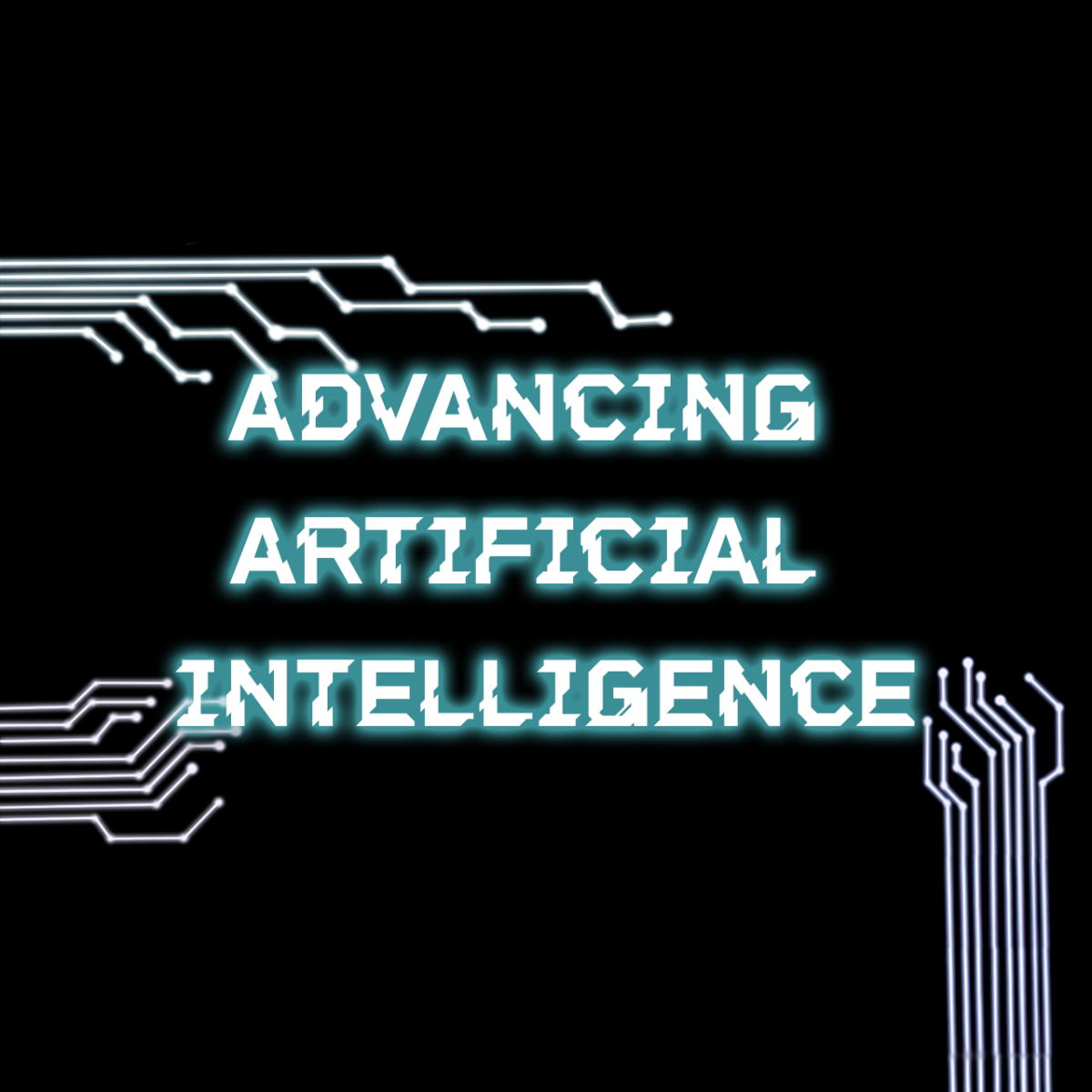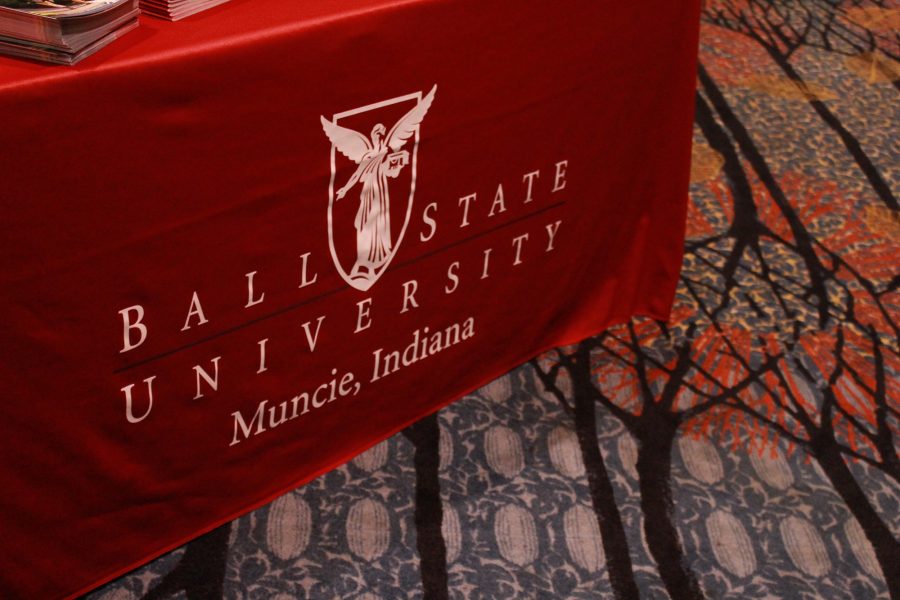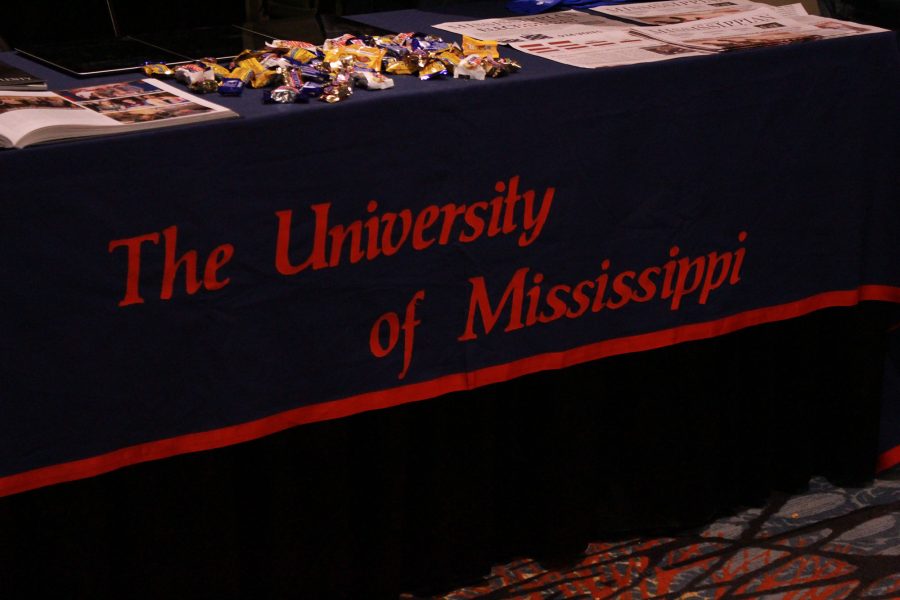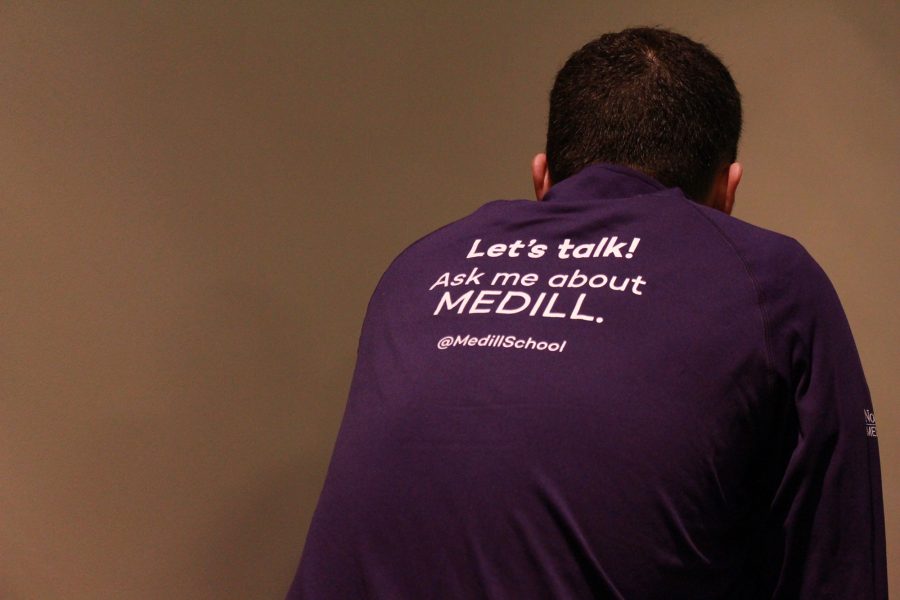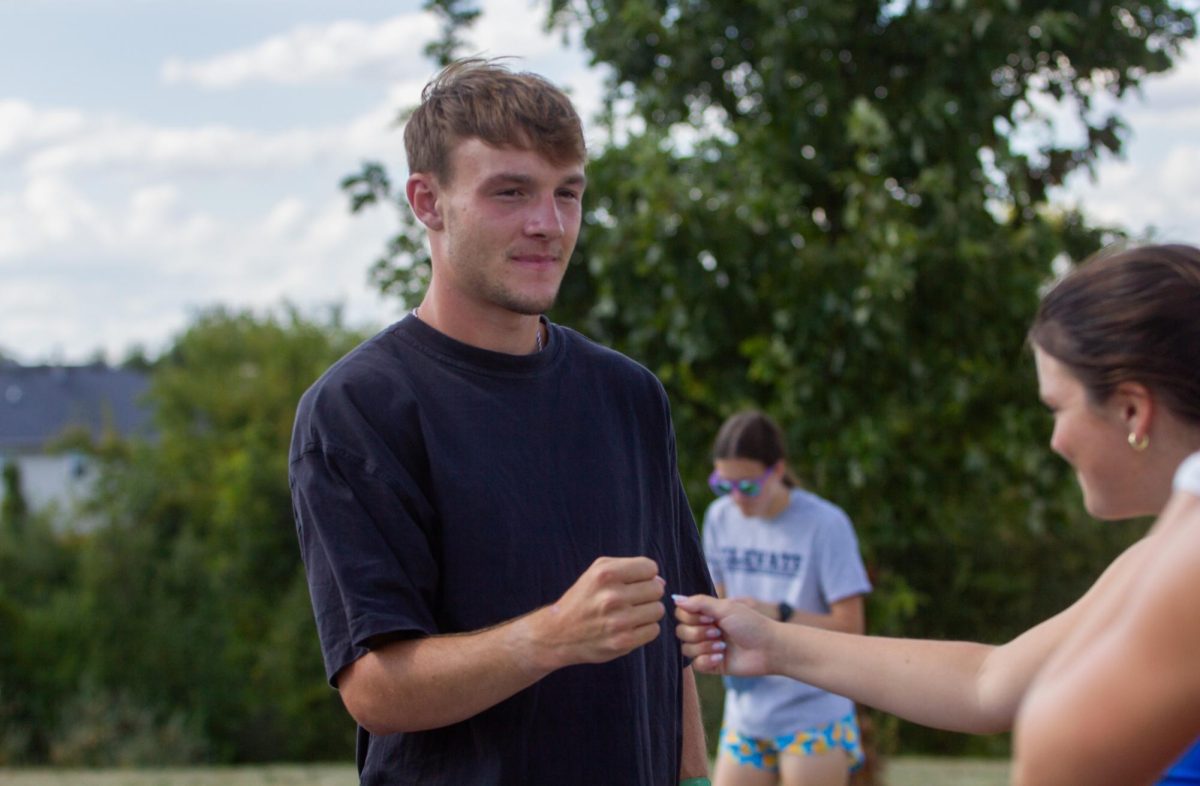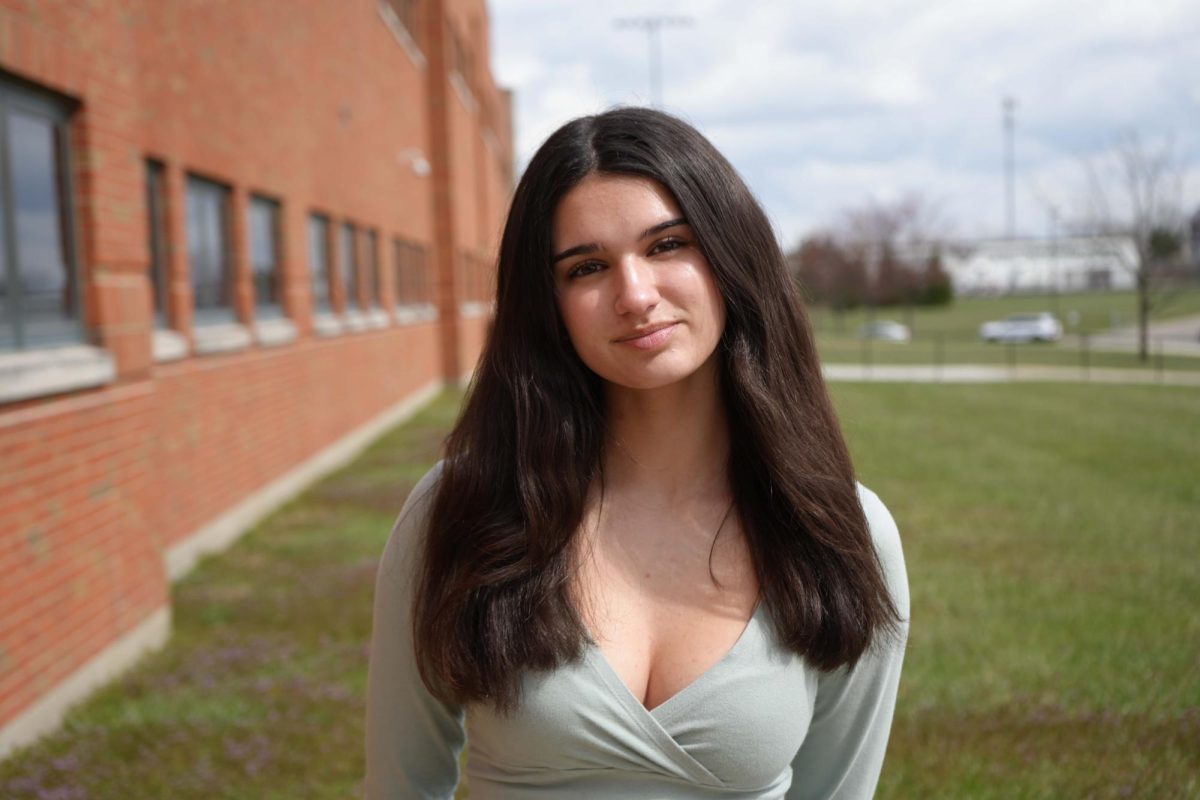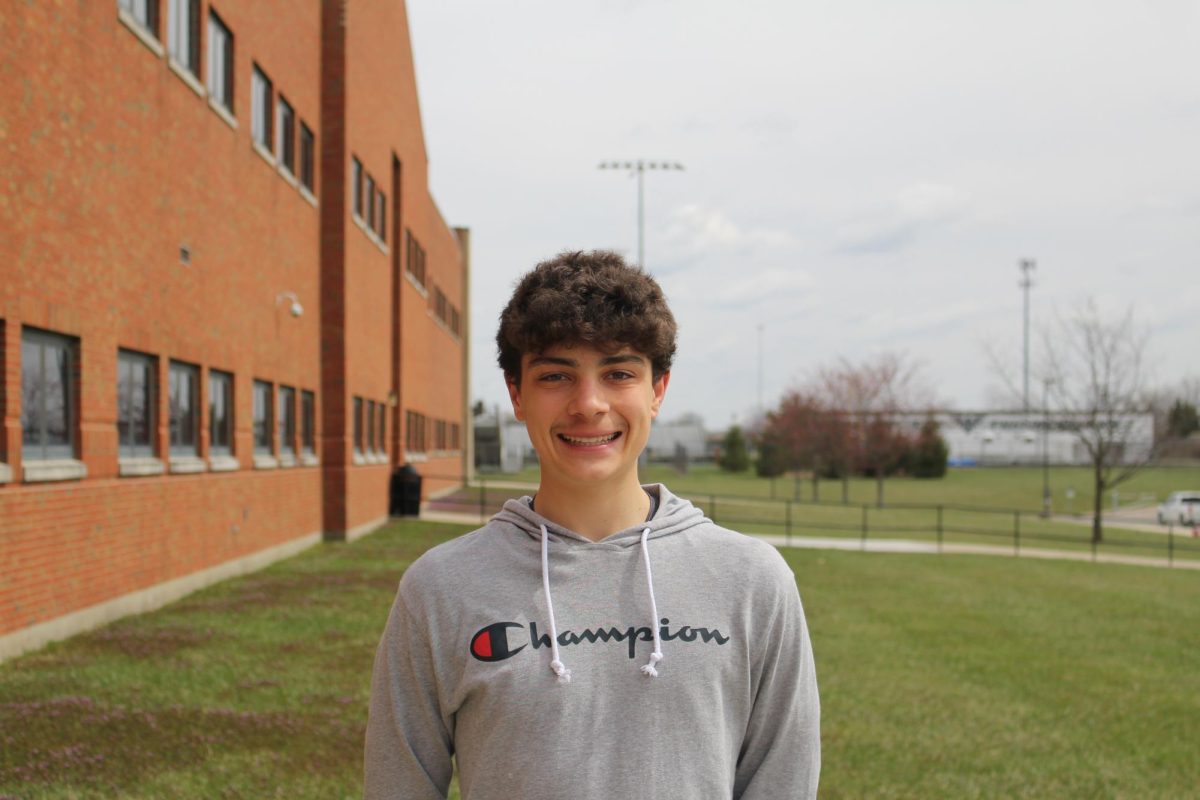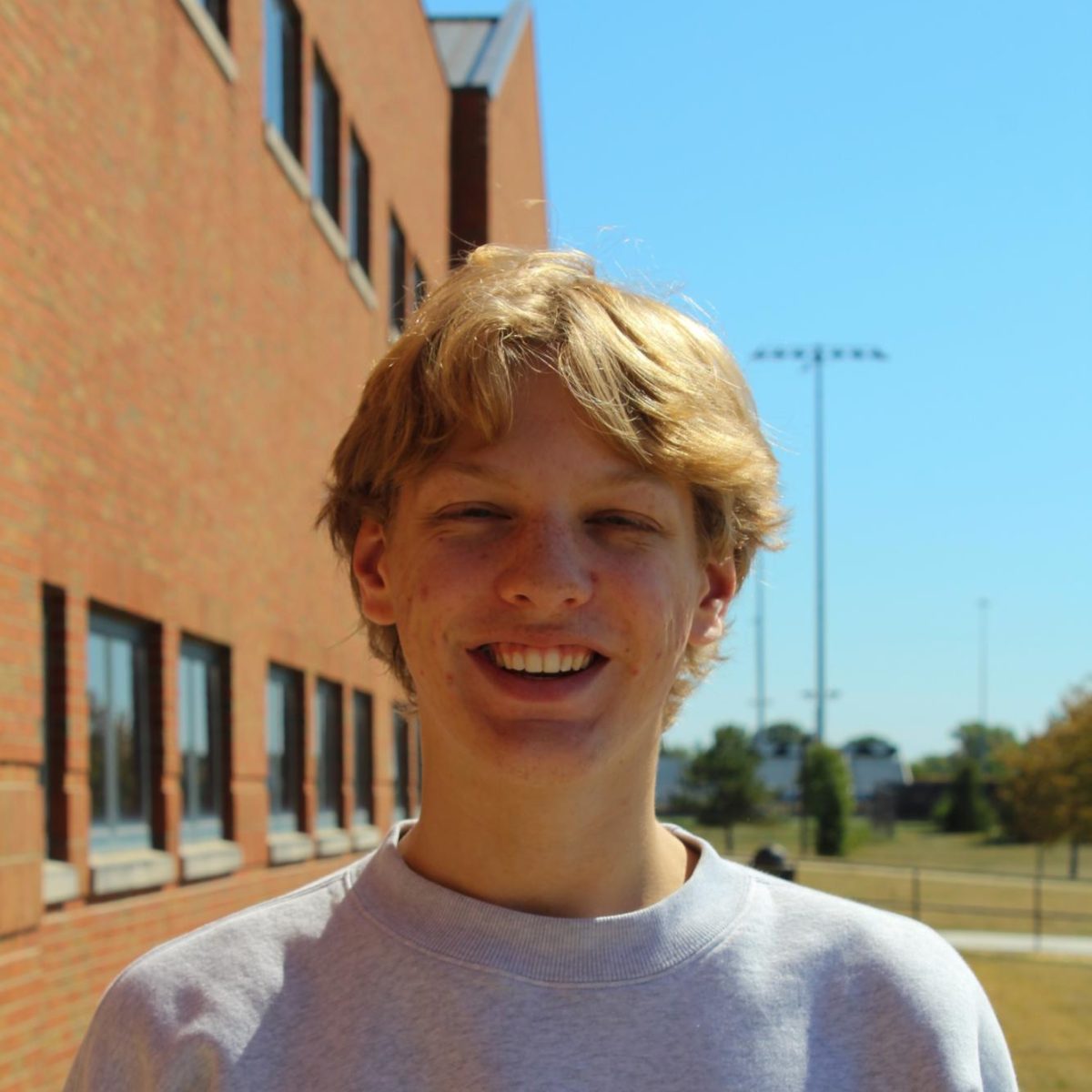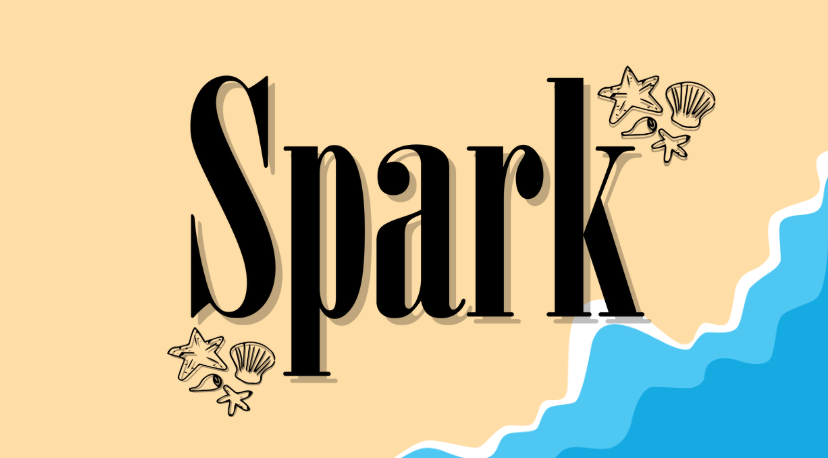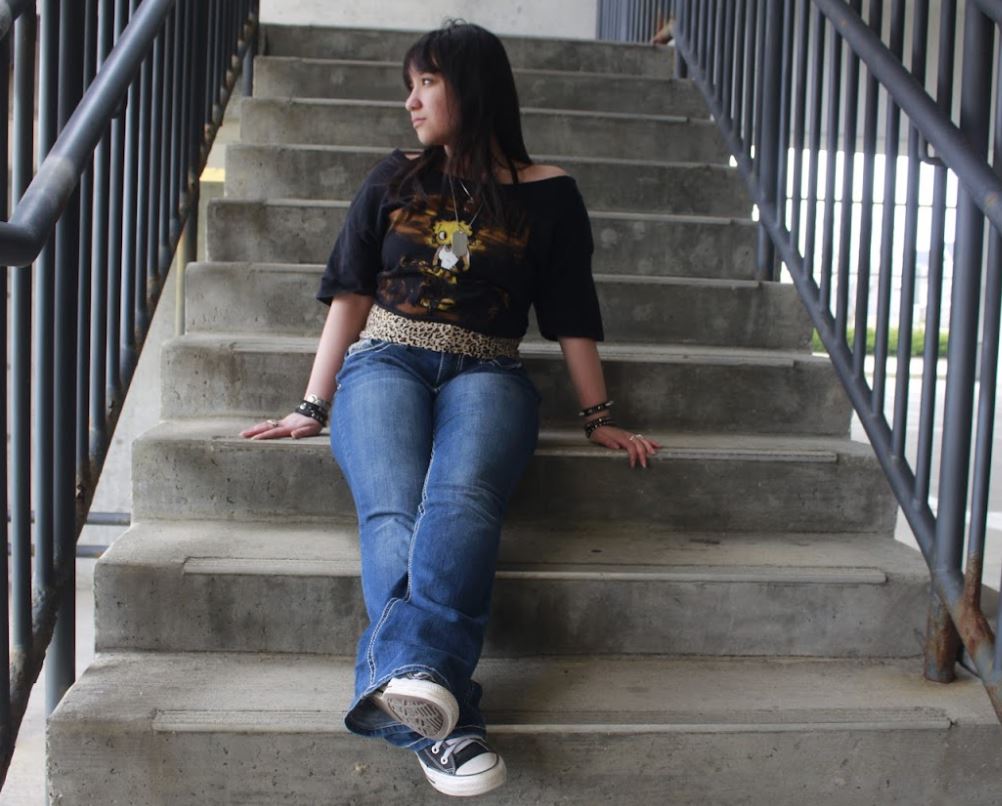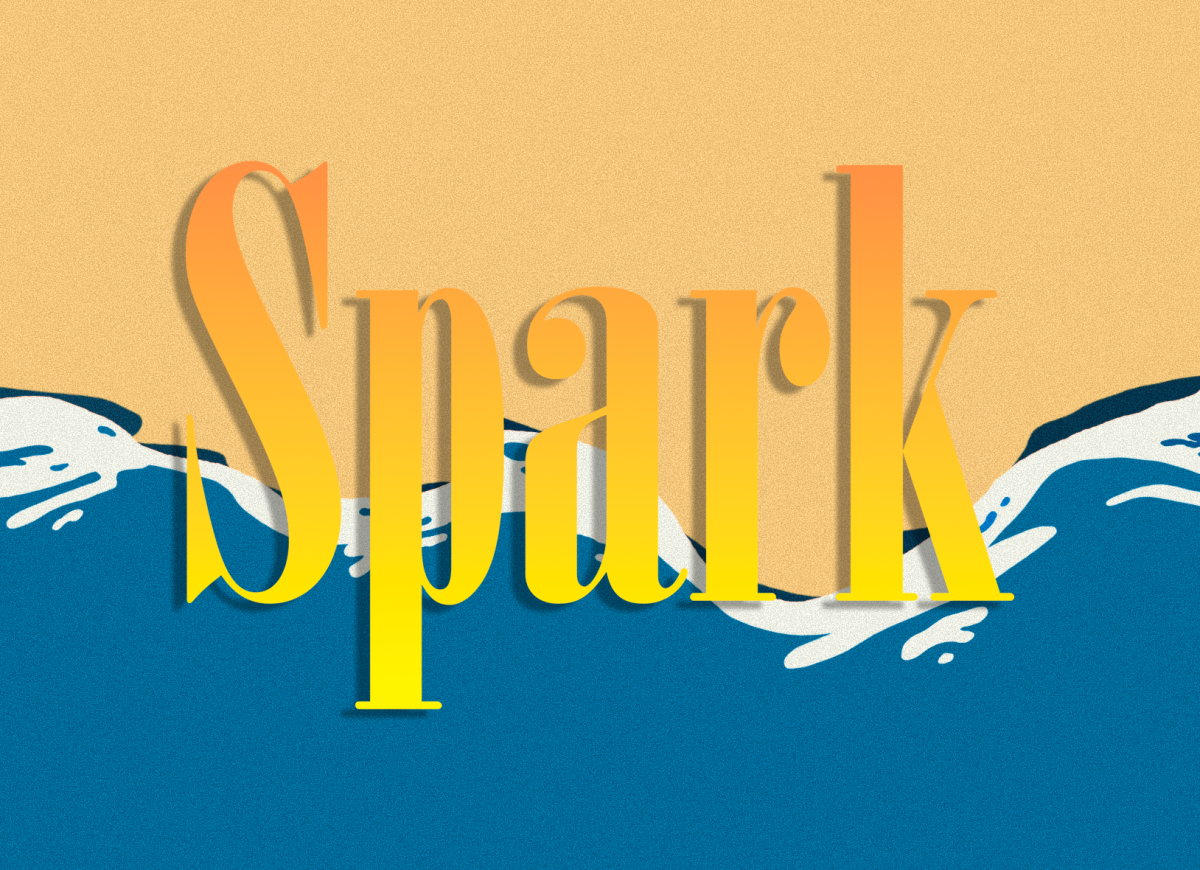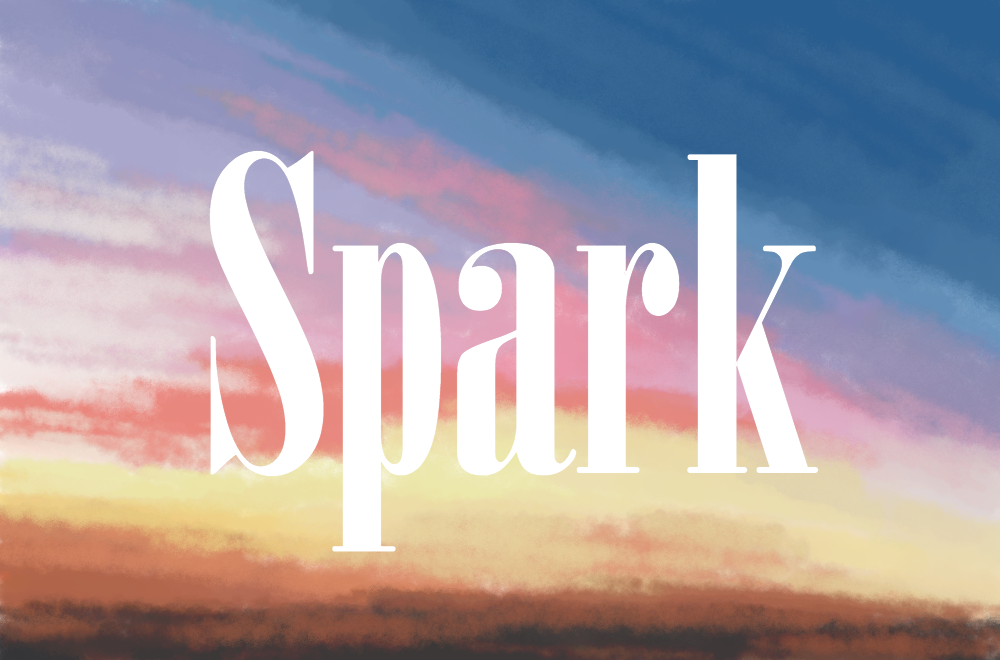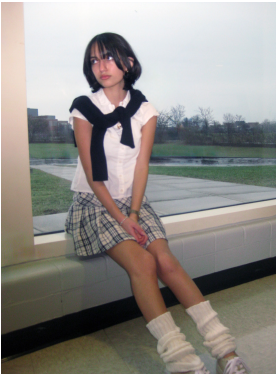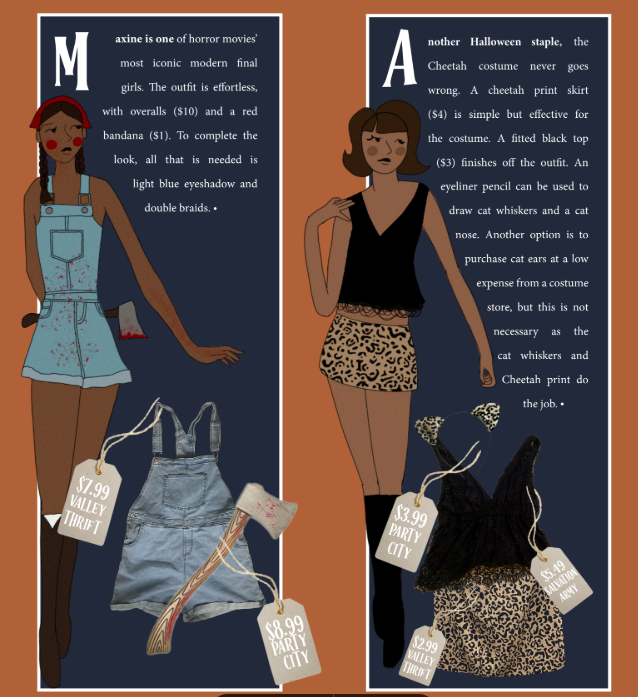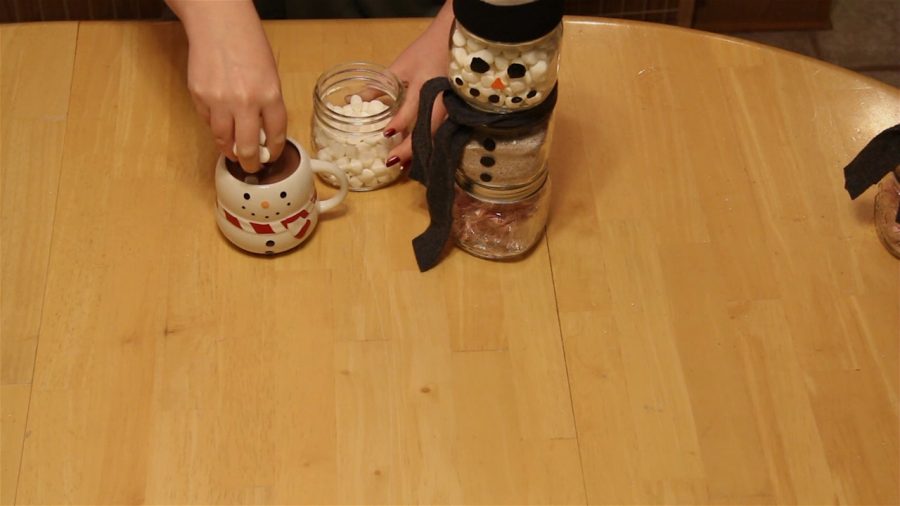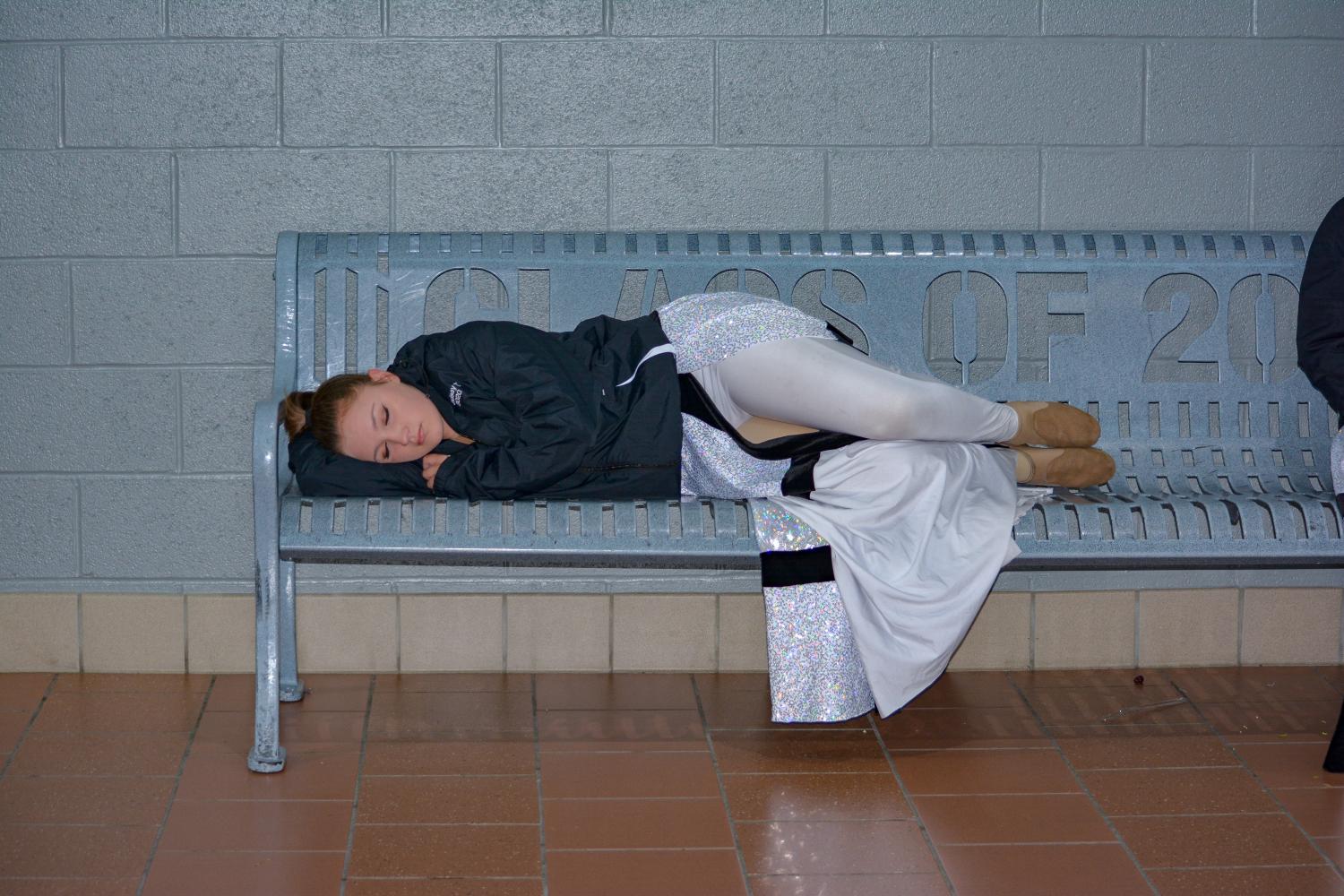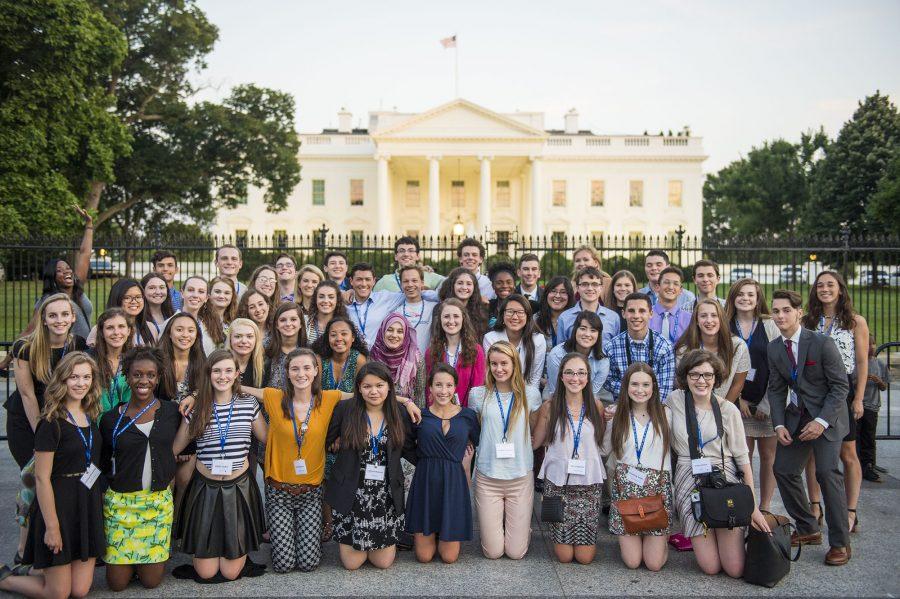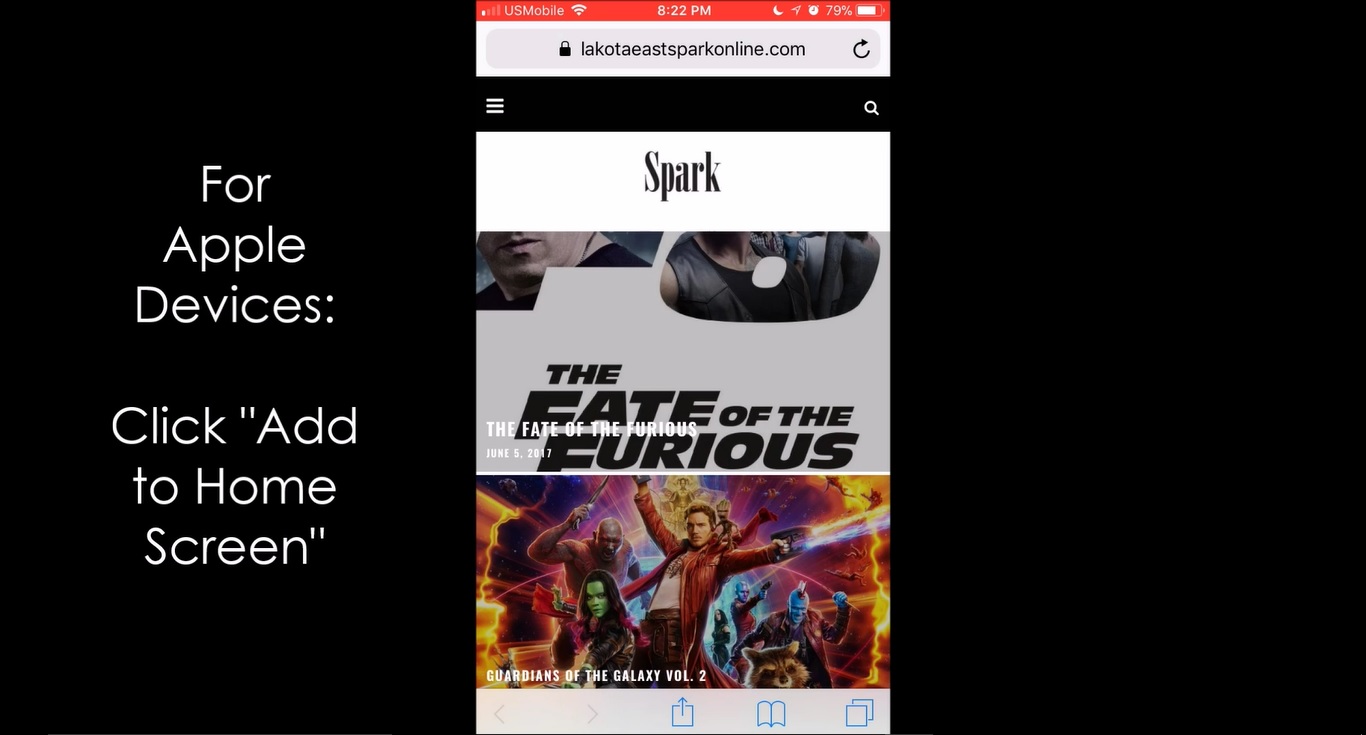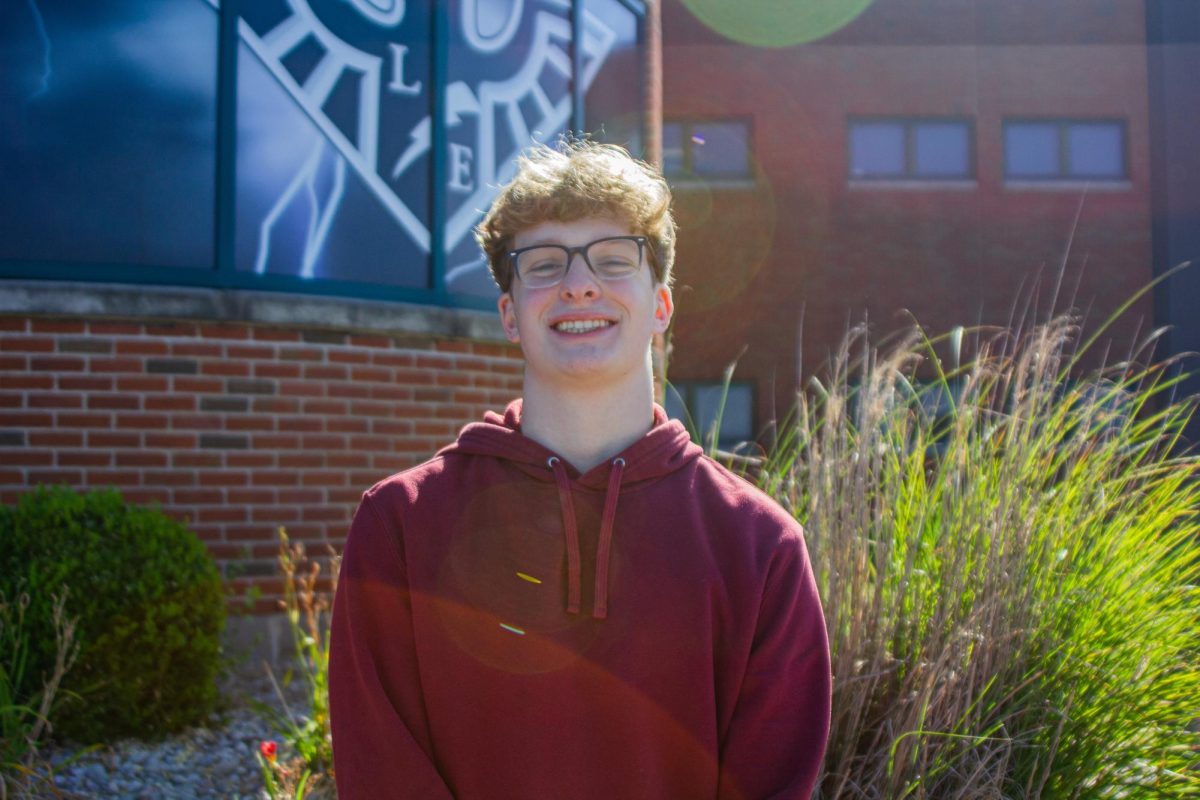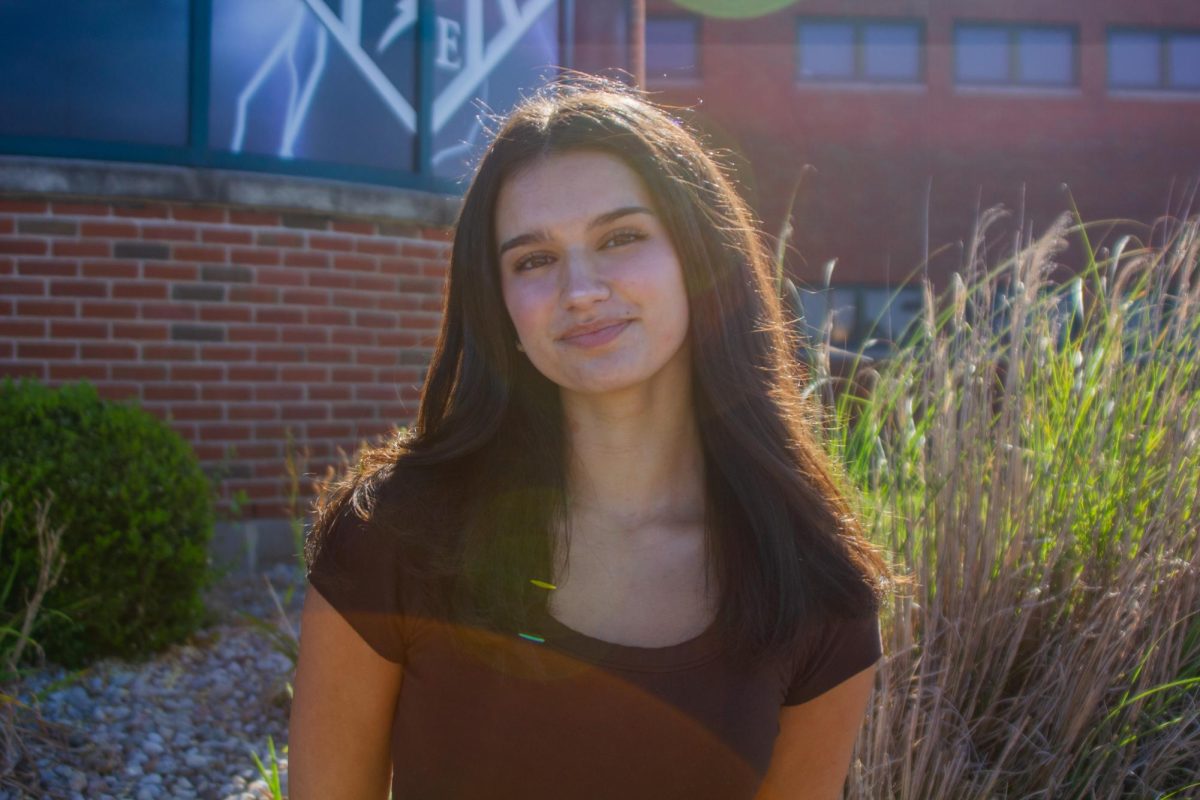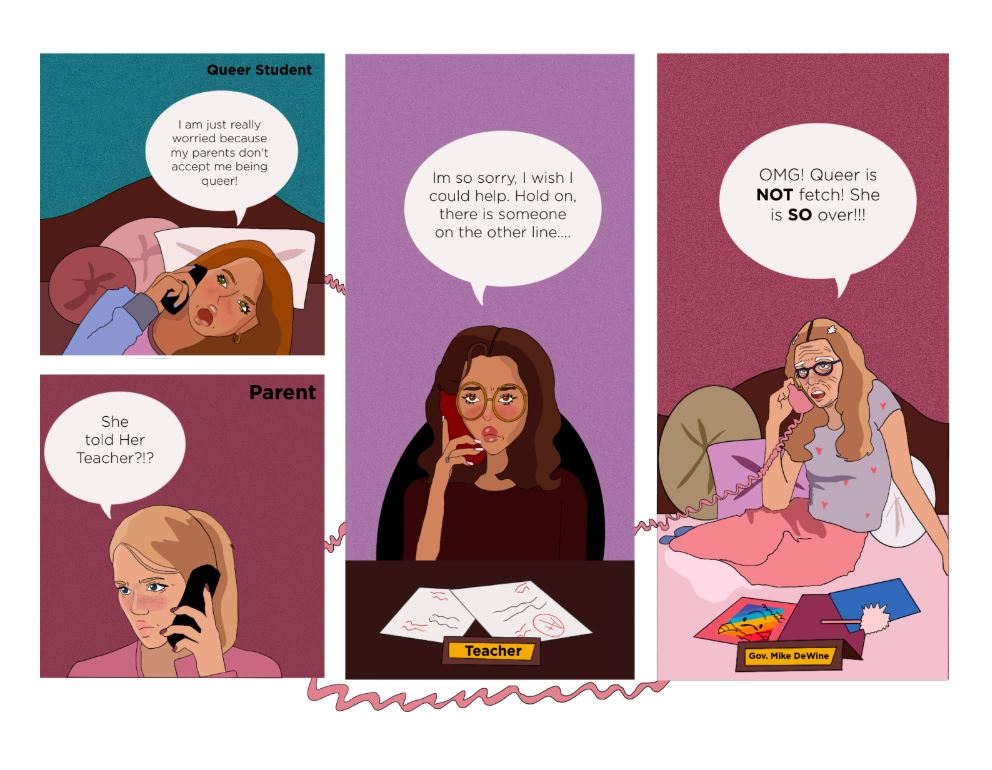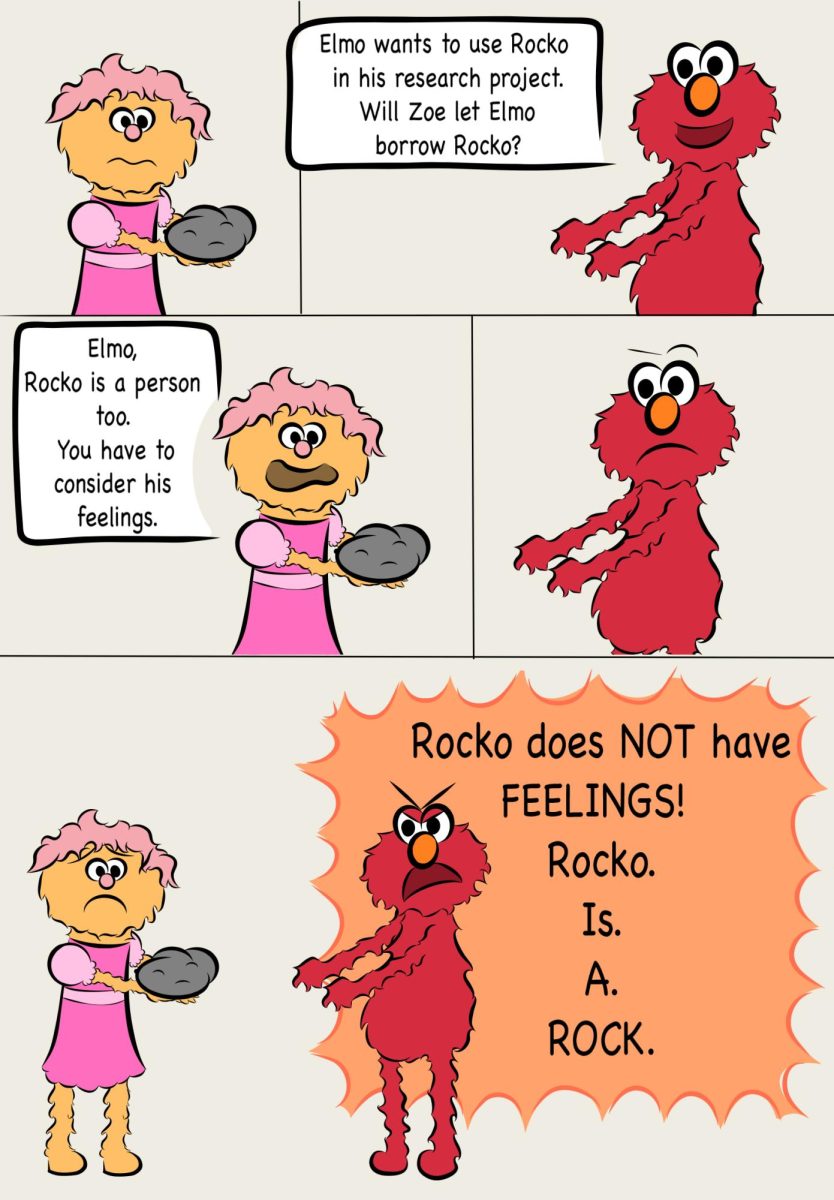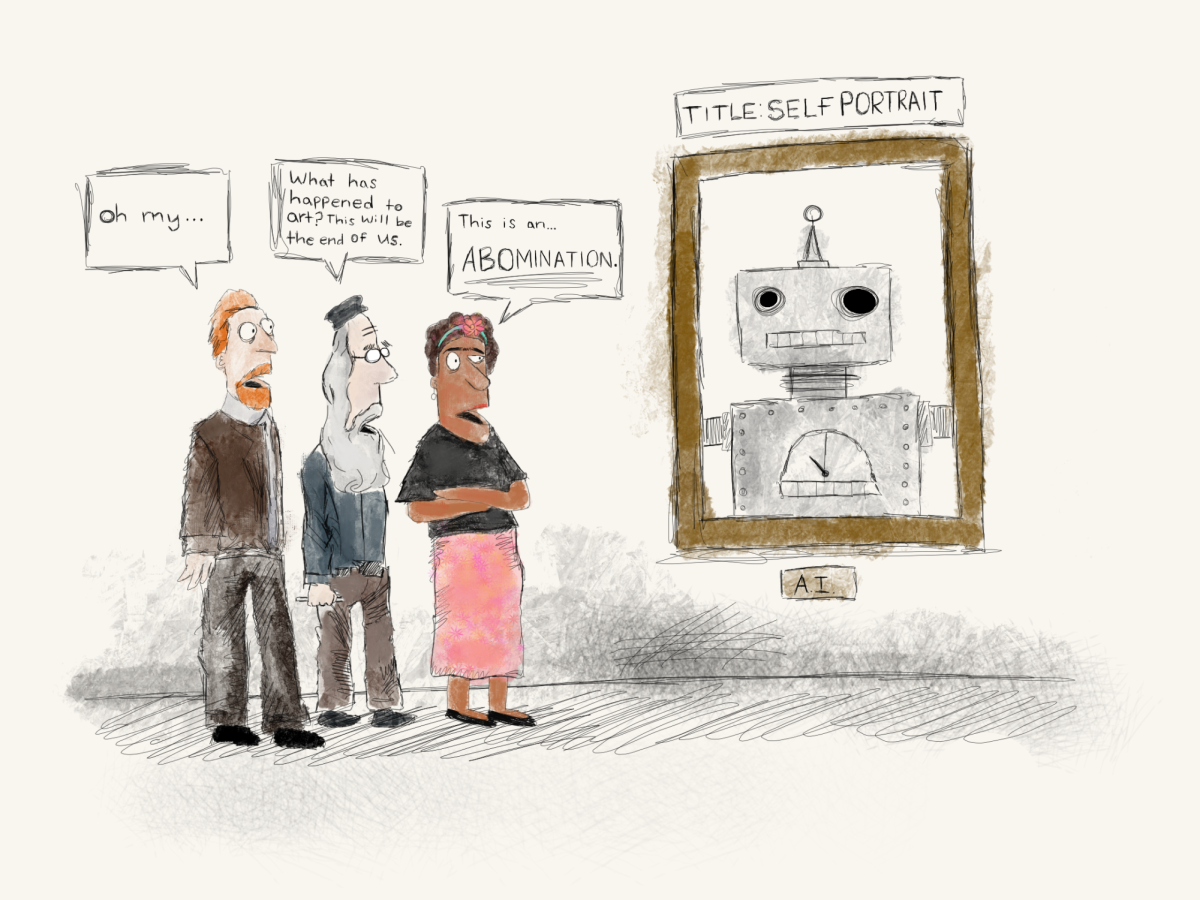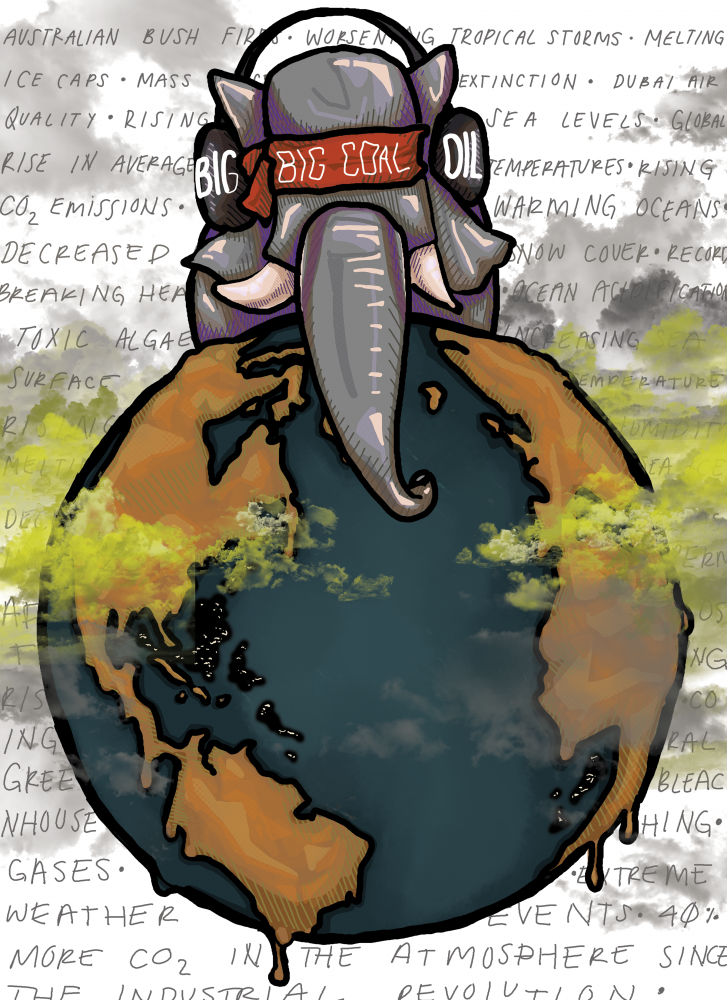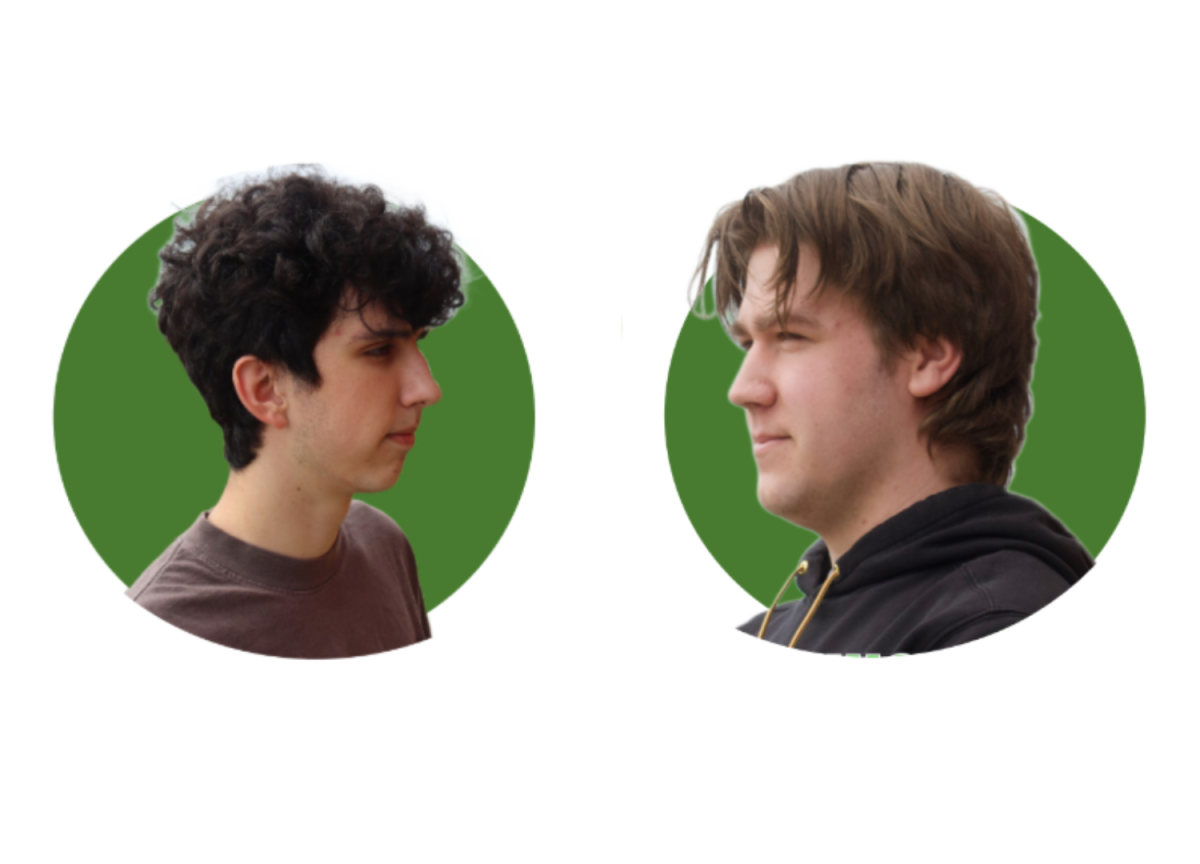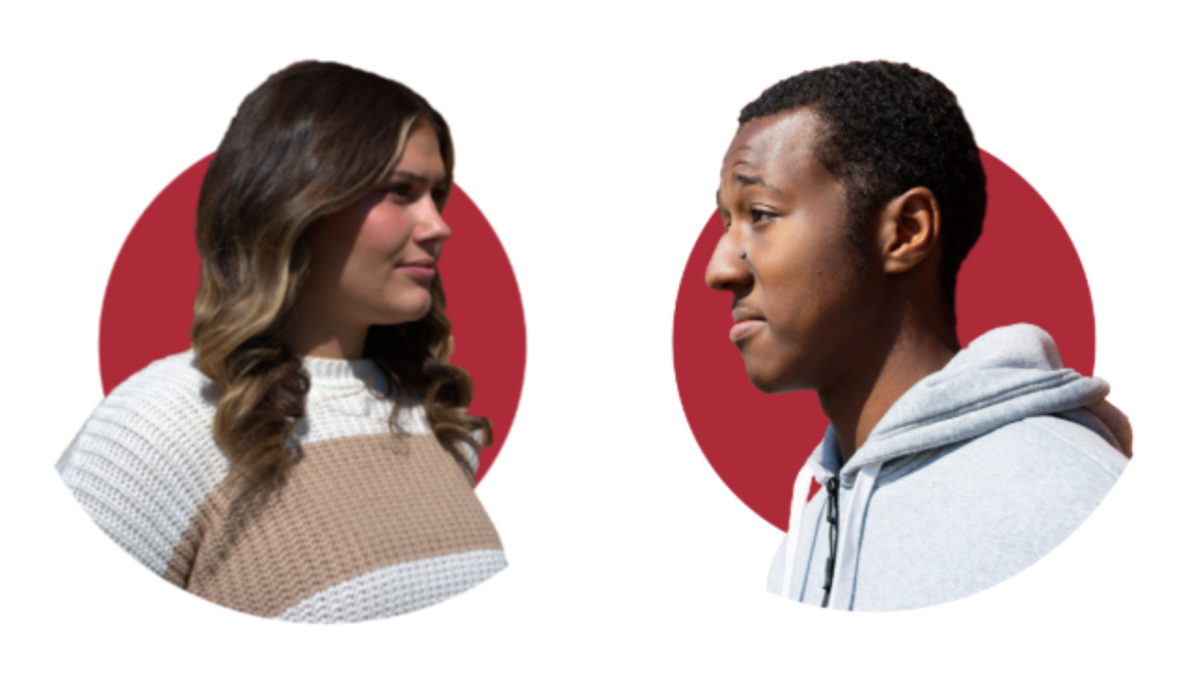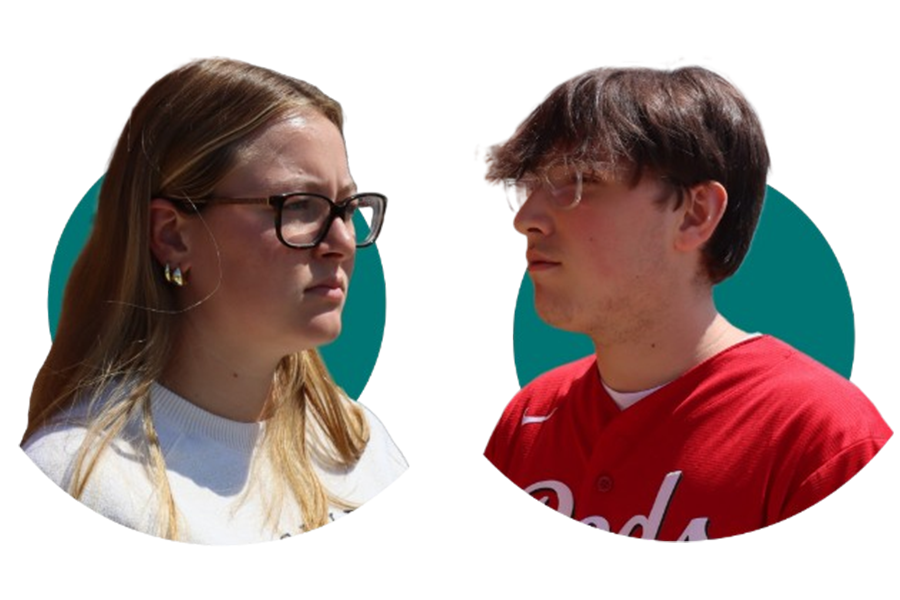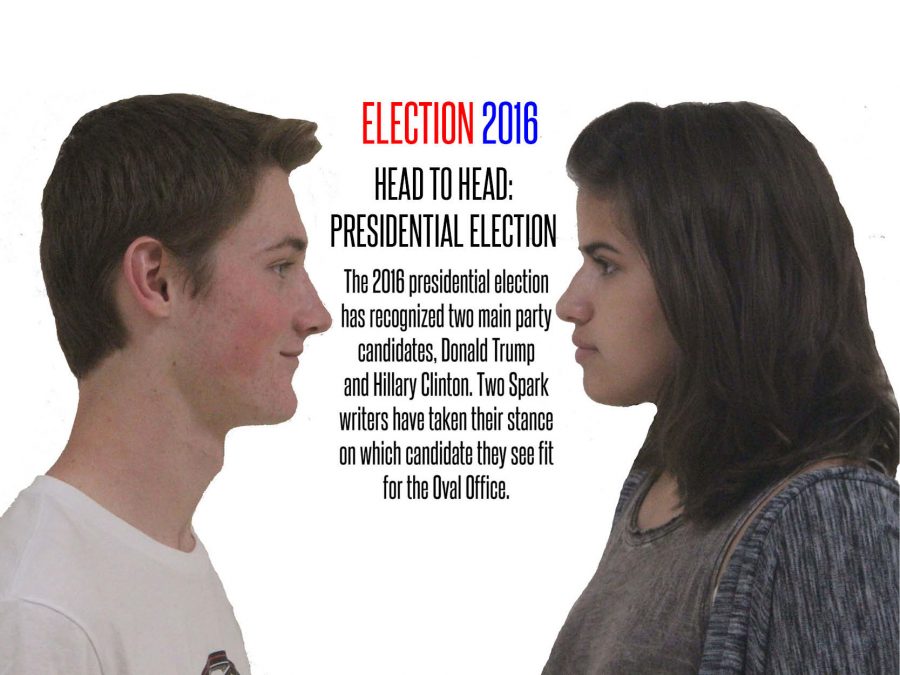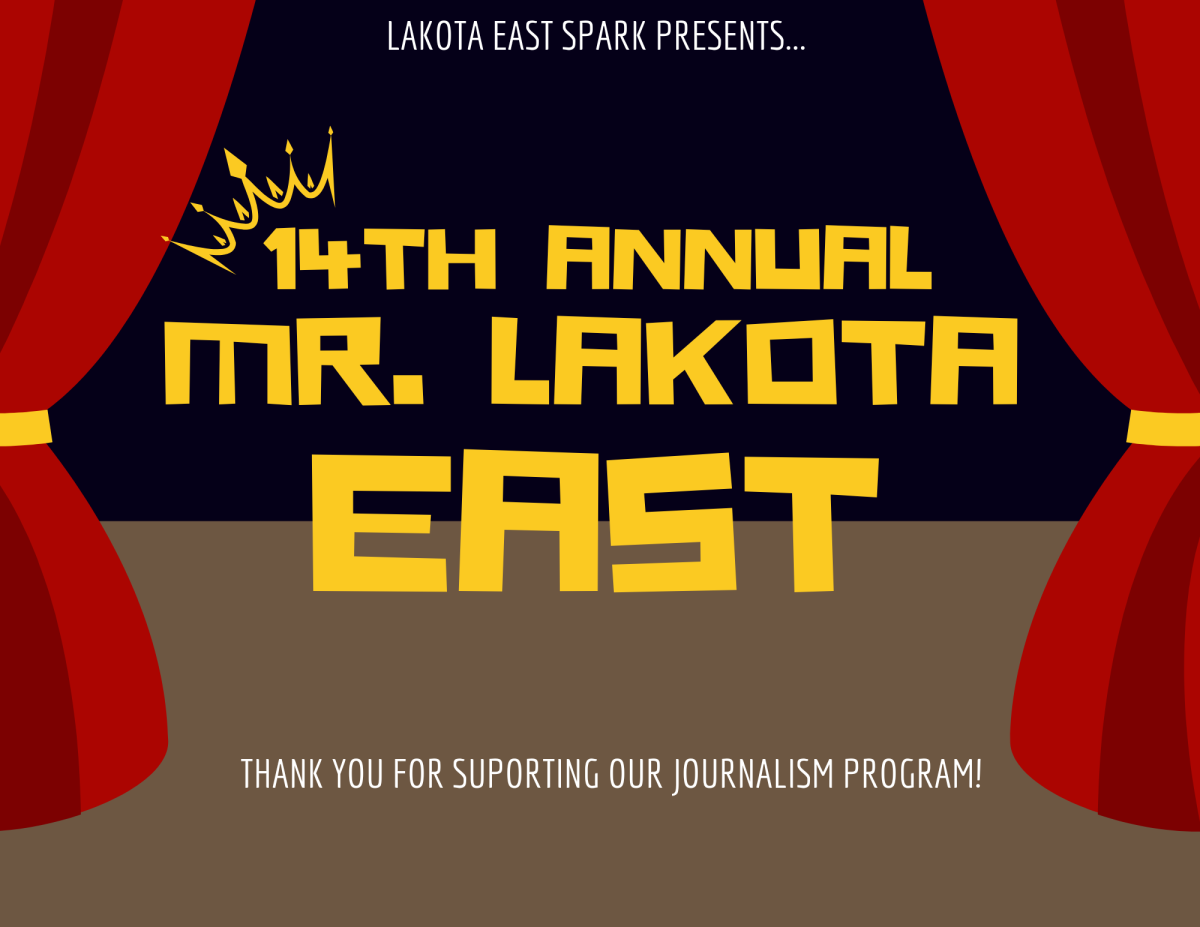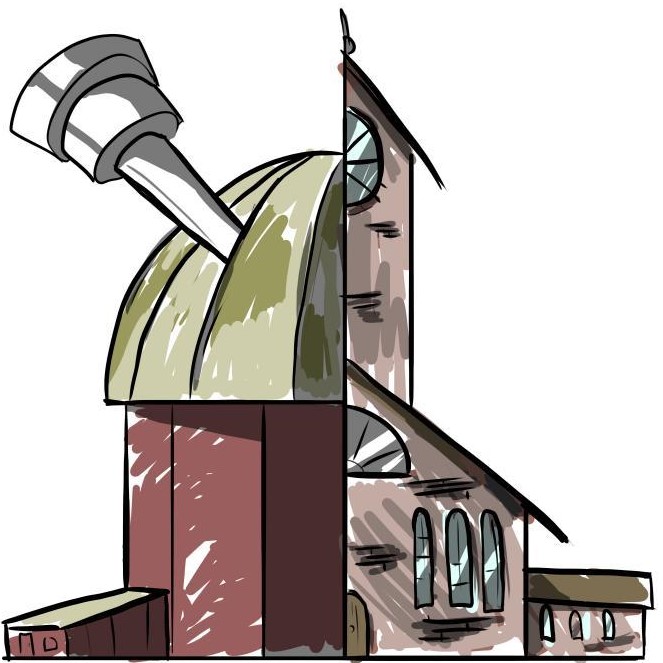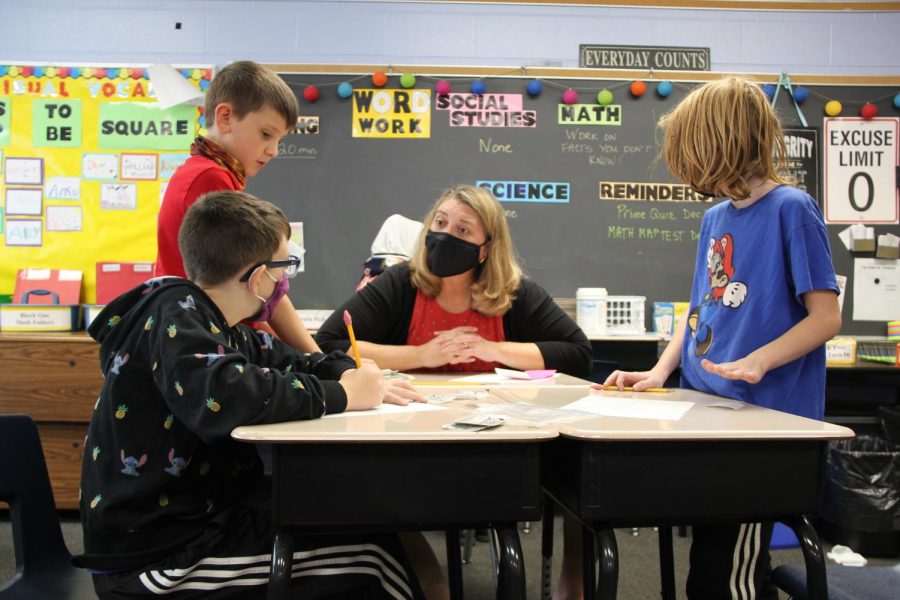Story by Samadhi Marapane | Art by Tyler Bonawitz
*denotes name change
Pacing the front of his lab equipped classroom, he continues his lecture in a college preparatory chemistry class in hopes of influencing the minds of the high school students in front of him. As his students take notes, he teaches them how to interpret the lab data and evidence they need to form conclusions.
Outside of the brick-walled classroom, the slow beginnings of a nationwide anti-science movement persists. This movement comprises of debates against evolution, human-induced climate change, vaccines, stem cell research and more topics. However, science teachers, such as East Chemistry and Advanced Placement Physics teacher John Severns, attempt to educate teenagers in those topics.
Before his 15 years as a high school teacher, Severns worked 11 years as a research scientist and manager at Procter and Gamble. This all stemmed from his continued interest in the science field 38 years ago. Even though he advocated the current status of the internet and all opinions having equal value, Severns also has discontent in the attempts to disprove scientific findings.
“It is ludicrous to equate someone’s gut reaction to the well-reasoned conclusion of someone or a group of people who have studied something for years,” Severns says. “I find it very frustrating when someone says ‘I just don’t believe that’ and consider that [as] a counter argument.”
According to Professor of the History of Science at Harvard University and author of “Science” and “Anti-Science” Gerald Holton, anti-science is the rejection of the scientific method and that science is an objective method or produces universal knowledge.
For example, climate change, or the gradual increase or decrease in the average temperature of the Earth’s atmosphere and its oceans, is a concept widely believed by scientists across the world. However, according to a 2014 poll by Pew Research Center, only 40 percent of Americans believe in climate change or that it is an immediate threat.
Miami University Justice and Community Studies Professor John Forren focuses on the fields of civic engagement and political science, and says that the challenges of some of the basic premises, methods and finding of the scientific community are not new in American politics.
“[The anti-science movement] is a very troubling thing because if we as a nation are going to solve our problems, we need to be able to agree on what the basic ‘facts’ are—about climate change and about a broad range of other social, environmental and cultural issues,” Forren says. “America’s success as an economic powerhouse has been based largely on our ability to innovate and solve problems through science and technology.”
According to the United Nations Educational, Scientific and Cultural Organization (UNESCO), World Science Day for Peace and Development, commemorated on Nov.10 of every year, is celebrated to accentuate the important role of science in society and the need to engage the wider public in debates on emerging scientific issues.
With the current timeliness of science denialism, this year’s theme is “Science for Global Understanding.” UNESCO’s Assistant Director-General for the Natural Sciences Flavia Schlegel says that “an important contribution that UNESCO and science and technology centres can bring to global understanding is the unique opportunity to combine global sustainability and local action” and the communication between science and policies should be interchanging.
Science has always been introduced to the American public through various platforms, whether it’s in the classroom or living rooms. 79 percent of millennials use online streaming service Netflix, according to a 2015 Business Insider study.
With this, there are TV shows, such as, “Bill Nye Saves the World,” “Cosmos” and “Planet Earth” that aim to educate viewers on common myths and misconceptions of the living world around humans.
In an official synopsis from Netflix in August 2016, “Bill Nye Saves the World” has filmed to have “each episode tackl[ing] a topic from a scientific point of view, dispelling myths and refuting anti-scientific claims that may be espoused by politicians, religious leaders or titans of industry.”
The first episode released had Nye discussing climate change. Nye said in an interview with Cable News Network in August 2016 that “there’s still a very strong contingent of people who are in denial about climate change. And if you don’t believe me, look at the the three people running for president of the world’s most influential country who are climate change deniers.”
Those three candidates included Ohio governor John Kasich, Texas senator Ted Cruz and now President Donald Trump. In a 2012 speech, Kasich says that he believed climate change is occurring and humans contribute to it, but said the Environmental Protection Agency should not regulate emissions.
However, Cruz says that “there has been no significant global warming for the past 18 years” from satellite data in his January 2016 speech at New Hampshire. Trump also tweeted on Nov. 6, 2012 on Twitter, “the concept of global warming was created by and for the Chinese in order to make U.S. manufacturing non-competitive.”
Creationism, or a theory holding that matter, the various forms of life, and the world were created by God out of nothing, has been widely disputed with evolution. Despite how religion factors into the denial of various scientific topics, atheism advocates for reasoning and logical thinking.
Emmanuel Elendu is a Pastor of Redeemed Christian Church of God Dominion Center Cincinnati. He believes that science is a revelation, opening or a discovery of what God has put in place.
“My position with science and my faith is, science only affirms what has been, and they are all in agreement” Elendu says. “Science should not go beyond and beat its chest to say that it discovered this because there are certains things that are in limitation to science.”
Besides this belief in atheism, the Hindu Temple of Greater Cincinnati chief priest Kailash Sharma says that “science is more about the belief in the statements and religion is more about the faith. The belief of religion is from your heart and body. Science isn’t a part of Hinduism but goes parallel with this religion.”
East senior Maddox Linneman considers himself an atheist since he never grew up with a specific religion, due to both of his parents not practicing a religious lifestyle. After growing up with the lack of religion and observing the other religions on his own, Linneman began to not believe in God thoroughly.
“Logic and reason are just the basis of what I believe in, whether it’s through religion or anything else,” Linneman says. “I don’t like the fact that most people just follow a religion just because their parents raised them that way. It seems to me like people aren’t thinking for themselves and [are] being raised to think a certain way.”
According to Membership Director at American Atheist and the editor-in-chief of “American Atheist” magazine Pamela Whissel, atheism is more inclusive than the public’s opinion deems it out to be. She says being “atheist means having lack of a belief in a god, not that they know there is no God, but lack the belief itself.”
“The word atheist applies to everyone because the word ‘atheist’ means somebody, who lacks the belief in a god or gods. If you don’t believe that Zeus is real, then you are an atheist,” Whissel says. “So the word applies to everyone, unless you believe in every god ever thought up.”
East Senior Hunter Phillips* also identifies himself as an atheist towards a specific audience. Due to the stigma behind atheists being immoral, Phillips chooses not to openly label himself as an atheist when he is with his religious extended family.
“To a certain point [believing in God] was kind of like [believing in Santa],” Phillips says. “Some people have a story for when they stopped believing in Santa and others sort of stopped over time.”
Phillips also believes the stigma behind being openly atheist comes from people thinking in order to be moral, you must be religious. He thinks morality comes with just being good and not fear of punishment regardless of whether someone is religious or not.
“In some religions the idea that the fear of sinning is fear of punishment and that’s not appealing to me,” Phillips says. “I’d rather live in a world where people do good things because it’s the right things to do and there is some some kind of inner good human nature.”
A May 2017 survey from University of Kentucky psychologists Will Gervais and Maxine Najle found that as many as 26 percent of Americans may be atheists. This study was designed to overcome the stigma associated with atheism and the potential for closeted atheists to abstain from “outing” themselves even when speaking anonymously to pollsters.
American Atheist has attempted to encourage more atheists to speak up for logic and reasoning as Whissel says “the internet has done a lot because information is more available than it ever has been in human history.”
“There are people who think they’re the only atheists in the world,” Whissel says. Then they come across something online groups [or] organization and connect around the world and become more open to identifying as atheist.”
Islamic Center of Greater Toledo Imam and Director of Religious Affairs Talal Eid has dealt with Islamic law, marriage, youth and other issues for over 40 years. He says that there they “do not see science as an enemy of the [Islam] religion but secular people do not believe that God is the creator but instead nature, which is fine too.”
Even though atheism endorses science, the theory of evolution is still controversial between many types of atheists and religions. Whissel believes that the teaching of creationism over evolution in classes is strictly religious based and is refuting the scientific findings about evolution.
“It is certainly a concern when many Americans don’t believe in the findings of scientific experts,” Forren says. “It is going to take a big effort by government and the private sector alike to address challenges [like Americans questioning the existence of the problem in the first place].”
The Valley Temple rabbi Sandford Kopnick has been the leader of the temple since 2001. According to Kopnick, Judaism believes in one God who created the heaven, earth and everything in between. However, Judaism’s holy book the Torah provides insights for the understanding the human condition–which includes science.
“The evidence of science does not discount any of what was previously stated, but enhances it. It is certainly true that the Torah should not be considered a history book as we think of textbooks,” Kopnick says. “Science is not anti-religion. What we learn from science is part of God’s plan–since we continue to evolve from a less sophisticated way of life.”
Phillips believes that science is the process of figuring things out about the natural world. Also, he believes it is the best process and therefore hopes the people of the anti-science movement should be accepting the conclusions reached from science. Whissel also agrees that the movement should diminish with the escalation of facts and reasoning.
“The denial of science is deadly [and] a lot of the anti-science based arguments are based on religion,” Whissel says. “There are people that believe the reason why climate change isn’t real is that God is going to end the world anyways. [Thus,] we can all be brought to heaven and so it doesn’t matter if we pollute the atmosphere.”
Vietnamese Buddhist temple Chua Phat Bao is also a community center and a nonprofit organization that aspires to spread Buddhism in a traditional manner that Monk Yang Li and his fellow members do.
“Traditionally, our beliefs rely on the spiritual side and we don’t practice the beliefs of science at our temple,” Li says. “However, with the modern technology advancements that we have made in the world, it is hard not to see the powers of science.”
Along with religion, politics has been another factor contributing towards the denialism of scientific topics. According to a 2012 article by Scientific American, a large number of major party contenders took anti-science beliefs, especially the Republican party, who attacked the legitimacy of science itself.
These findings are surprising due to the major role of economy in this year’s election, and yet more than half of economic growth in the last century can be traced back towards the innovations that have come from science and technology. With scientific innovations being important to Linneman, he believes the anti-science movement is harmful to the progression of scientific breakthroughs.
“I want to go into medicine and I think that [the medical] field has a lot of basis around the smallest pieces of life. It translates through the intricacy of science itself as an atom can affect how your body [functions],” Linneman says. “I think if you’re going to ignore some of these things like the stem-cell transplants then [science denialism] will just not work with a lot of science based professions.”
Specifically, Donald Trump challenged the validity of medical research and findings in the form of tweets, claiming autism and vaccinations correlate, questioning the Center of Disease Control (CDC)’s work with the Ebola virus, and more.
In 2014, Trump tweeted, “healthy young child goes to doctor, gets pumped with massive shot of many vaccines, doesn’t feel good and changes—AUTISM. Many such cases!”
On a televised showing of Fox and Friends in 2014, Trump says that the CDC is ridiculous and stated that the organization and the government should be ashamed of itself and the handling of the Ebola virus.
Earlier on before lashing out on television, he had already tweeted, “same CDC which is bringing Ebola to US misplaced samples of anthrax earlier this year…be careful.” in regards to a September CNN article on the virus’ outbreak on humans all around the world.
Forren also agrees that many Americans don’t trust elites of any type anymore in the government, in civic organizations, in media, in education and in the scientific community.
“What I think is especially interesting right now is the resistance to science,” Forren says. “It’s really part of a general decline in America’s levels of trust and confidence in many of our institutions and leaders.”
Even though Severns believes that free speech is a bedrock tenet of American society, the public must return to the era of reasoning, much like atheists endorse with their beliefs.
“I do hope that we can return to well-reasoned debate of the role of science in society,” Severns says. “Scientist love to debate based on the facts. Let’s reason together.”


